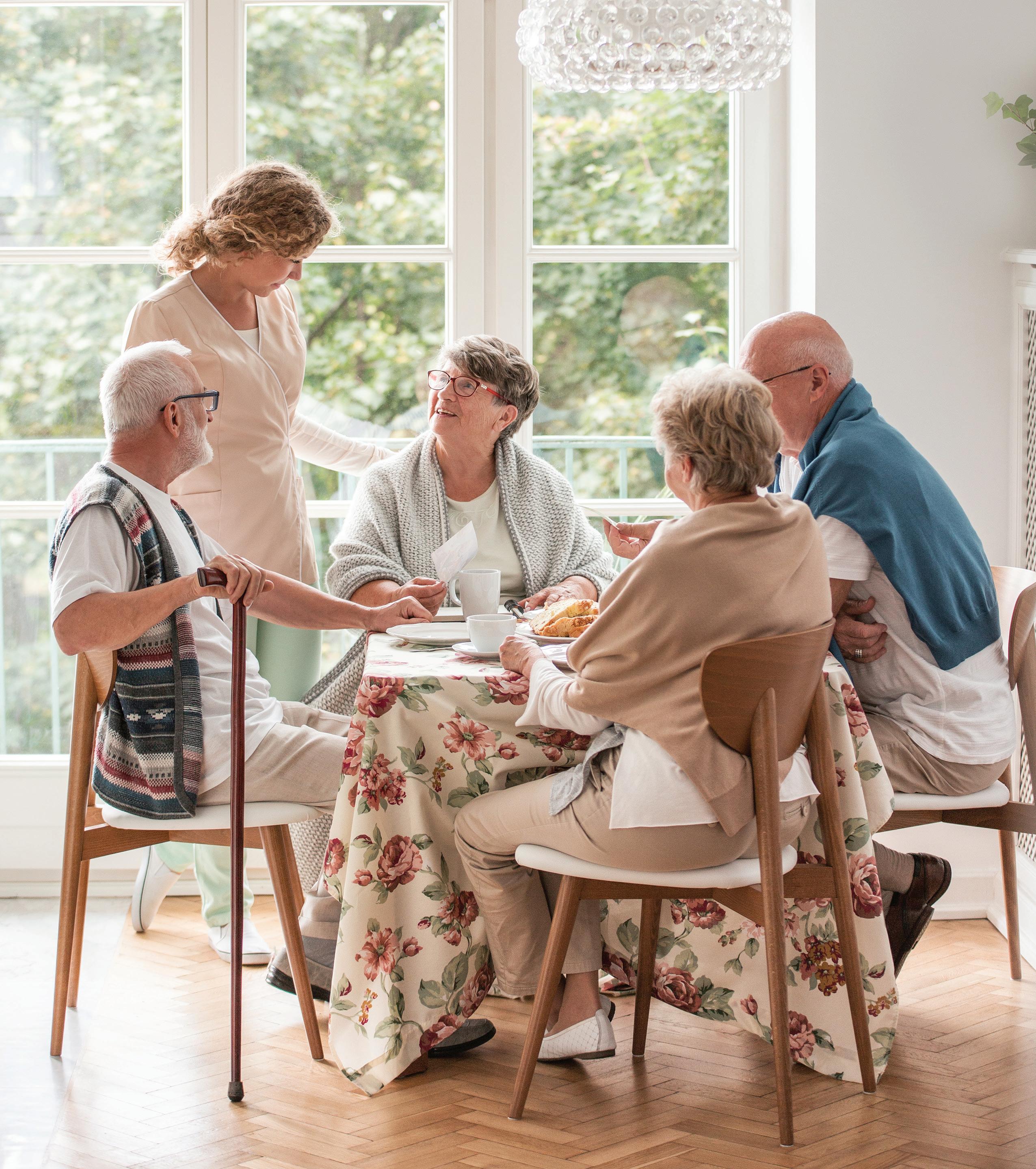
March 2024 carehomemagazine.co.uk



Uplifting cleaning and disinfection for your workplace


Our Disinfectant Mist for hard and soft surfaces, and grease and grime lifting Multipurpose Disinfectant Cleaner are here.
Available in a range of beautiful, room-filling fragrances.
USE ALL AROUND YOUR SPACE





















FLOORS



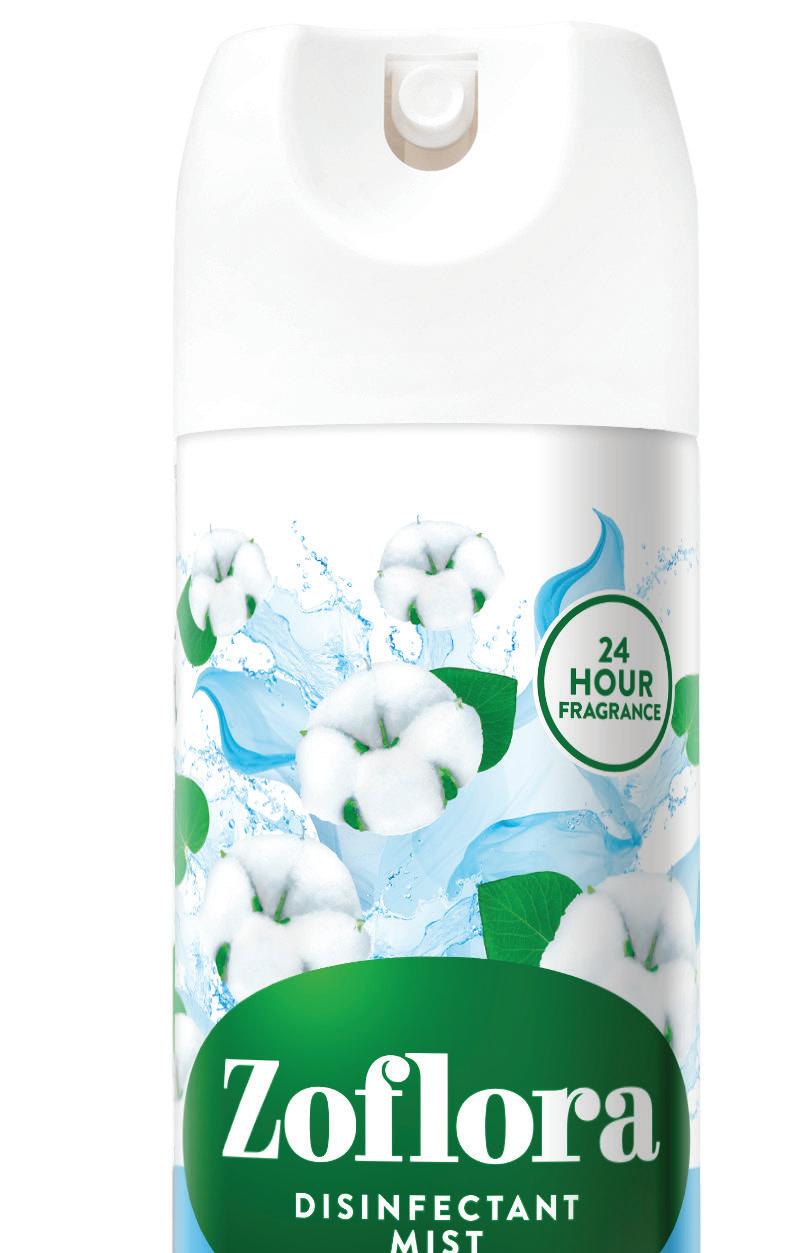














Fill your workplace with beautiful fragrance from the ground up! Add 1 capful of concentrated Zofl ora for every 400ml of water in a bucket and mop over hard fl oors.
SINKS/SHOWERS









Spray and wipe down sinks, taps and shower heads regularly. To eliminate odours, pour a capful of Zofl ora Concentrated Multipurpose Disinfectant down the plug hole after use.



























RECEPTION / SURFACES


Use our Multipurpose Disinfectant Cleaner all around to leave spaces hygienically clean and beautifully fragrant.*
TOILETS
Eliminate germs and keep your toilet fragrant. Leave your toilet brush to soak in Zofl ora Concentrated Multipurpose Disinfectant to keep it clean and fragrant.
























DOORS, HANDLES & BUTTONS
Frequently touched areas can often harbour germs. Deliver a beautiful welcoming fragrance, with our Disinfectant Mist. Regularly spray surfaces to kill 99.9% of viruses and bacteria, including the COVID-19 virus (SARS-CoV-2).
CHAIRS / CURTAINS
Freshen up your soft furnishings with our Disinfectant Mist. Not only will your surface be hygienically clean, but your area will be filled with beautiful fragrance too.* It’s also touch dry in 45 seconds!


NEW *Zoflora conforms to the latest British Standard BS EN 14476 2013+A2:2019.
Chief Editor
Jade Evans
jade.evans@cimltd.co.uk
Editorial Assistant
Ailsa Newgreen ailsa@cimltd.co.uk
Publication Manager
James Davies
jamesd@cimltd.co.uk
Tel: 01795 509 112
Account Manager
Jazmine Davis
jazmine@cimltd.co.uk
Tel: 01795 509 112
Administration Manager
Natalie Murray
admin@cimltd.co.uk
Tel: 01795 509 103
Credit Facilities Manager
Gwen Lee
creditcontrol@cimltd.co.uk
Tel: 01795 509 103
Design and Production
James Taylor
james@cimltd.co.uk
Grant Waters grant@cimltd.co.uk
Marketing Manager
Lucas Payne
lucas@cimltd.co.uk
Sales Director
Tom Woollin tom@cimltd.co.uk
Chief Executive
John Denning
Editor’s Letter March 2024
March 20th-21st are dates firmly marked in many calendars as UK Care Week returns to Birmingham’s NEC. The event aims to unite the care community through addressing the biggest challenges facing the care sector and celebrating the talent of care workers, so we begin the issue by sharing a Show Preview, detailing exactly what you can expect from the occasion.

Food and Nutrition is a key focus in this issue of Care Home Magazine with our main feature looking at the role of caregivers in promoting healthy eating habits in care homes. Our much-loved Dishing Up feature and a guest column from Allmanhall, which shares signs of malnutrition amongst older adults and nutritional advice on its prevention, are both pieces which contribute to the food-focused edit, making it one not to be missed.
Discover the art of efficient cost management this month, in a piece tailored specifically for care home administrators and managers. Delve into insightful strategies and proven methods aimed at optimising resources without compromising quality care. From budget allocation to resource utilisation, learn how to navigate the complex landscape of financial stewardship while maintaining exceptional standards of service. Commentary from experts allow us to unlock the secrets to sustainable cost control and empower your care home to thrive economically.
This, of course, is just a snippet of what this edition holds. Enjoy the read and we look forward to hearing your thoughts.
Jade Evans, Chief Editor
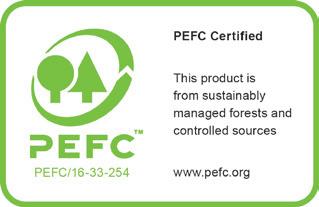

© 2024 TGM Publishing Limited, 1st Floor, Saphir House, 5 Jubilee Way, Faversham, Kent, ME13 8GD. No part of this magazine may be reproduced or stored in a retrieval system or transmitted in any form – electronic, mechanical or physical – without express prior permission and written consent of the publisher. Contributions are invited and when not accepted will be returned only if accompanied by a fully stamped and addressed envelope. Manuscripts should be type written. No responsibility can be taken for drawings, photographs or literary contributions during transmission or in the editor’s hands. In the absence of an agreement the copyright of all contributions, literary, photographic or artistic, belongs to TGM Publishing Limited. The publisher accepts no responsibility in respect of advertisements appearing in the magazine and the opinions expressed do not necessarily represent the views of the Publisher. The Publisher cannot accept liability for any loss arising from the late appearance or non publication of any advertisement.
carehomemagazine.co.uk 4
Table of Contents
6 Industry Update
Providing insights into what’s currently happening within the care sector, we share some of the latest news.
10 UK Care Week: Show Preview
Returning to Birmingham’s NEC this March, UK Care Week provides a platform with industrydefining content, live product demonstrations and interactive features to equip you with the skills and knowledge to improve the lives of those you care for. Head to page 10 to find out what you can expect from the event and why you shouldn’t miss it.
15 Food and Nutrition
With the help of industry experts, we highlight the importance of caregivers in fostering a positive eating environment, providing tips and training suggestions for caregivers to encourage healthy food choices among residents.
22 Dishing Up
This month, Bidfood share another recipe guide to a dish bound to impress.
24 Guest Column
Rachael Venditti RNutr from allmanhall, highlights some of the signs of malnutrition amongst older adults and offers nutritional advice on its prevention.
30 Cost Management
Balancing Quality of Care with Cost Efficiency: A Delicate Equation. Here we discuss the challenges of maintaining a balance between delivering excellent care services and managing costs.

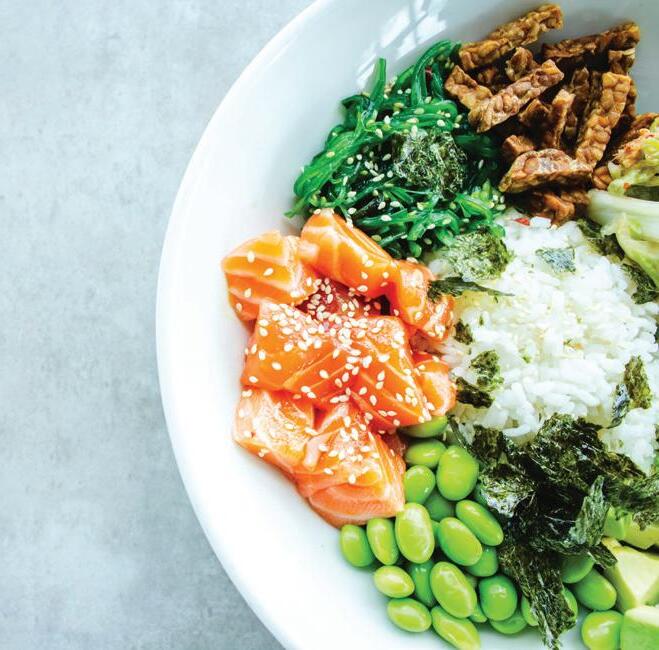



10 16 24 34 26 carehomemagazine.co.uk 5
Industry update
Hythe care home receives Care VIP accolade
Acare home in Hythe has been awarded a prestigious Care VIP accreditation.
The accreditation has been awarded to Care UK’s Carpathia Grange, on Southampton Road, and recognises the team’s work alongside residents and families to improve the lives of those living with dementia.
Developed in 2004, the Care Fit for VIPS framework was introduced by dementia experts and is centred around four key aspects: valuing those living with dementia, treating everyone as an individual, showing empathy towards those living with the condition, and recognising the need for a stimulating social environment.
Carpathia Grange achieved the accreditation by offering an extremely high level of care for those living with dementia, impressing with a score of over 90% across all elements of care.
Carpathia Grange was praised for its “truly person-centred care”,
and the meaningful engagement shown between team members and residents during activities and conversations.
Throughout the assessment day, colleagues were observed interacting with residents whenever they encountered one another, colleagues were knowledgeable and skilled when communicating with individuals, adapting the speed of interaction, and complexity of language to suit the abilities of everyone.
The report highlighted the team encouraging those living with dementia to regularly participate in daily activities and providing a strong sense of purpose while enjoying the benefits of a social setting.
The care team were praised for the high level of support given to residents at all times, highlighting the team as being ‘gentle’, ‘encouraging’ and ‘kind’. The team actively ensure they are engaging in meaningful conversations with residents and supporting them to
Rangeford Villages exchanges contracts to acquire West Sussex site for new integrated retirement community
Rangeford Villages, the award-winning later living provider and operator, has announced that, following exchange of contracts, a hybrid planning application (ref: DM/23/2699) for the IRC and wider mixed-use community has been submitted by the promoter, Wellbeck and is currently being considered by Mid-Sussex District Council.
Rangeford intends to develop their section of the site, which is part of the existing Imberhorne Farm, subject to detailed planning consent, with a collection of circa 150 state-of-the-art 1-,2-, and 3- bedroom apartments and
carehomemagazine.co.uk
2-bedroom bungalows.
In keeping with Rangeford’s full-service Integrated Retirement Community (IRC) model, the development will provide a focus on wellness and include a wealth of exceptional first-class amenities comprising a fully equipped gym and spa which includes a swimming pool, sauna, and steam room, as well as a restaurant, bar, coffee shop, and hair and beauty salon. There are also plans for extensive communal gardens with a village green, croquet lawn, boule court, allotments and more.
Doug Jones, Land and Planning Director of Rangeford Villages, continued, “We are delighted to

reminisce about their life.
Pooja Dhoot, Home Manager at Carpathia Grange, said, “We’re delighted that our hard work has been recognised with the Care VIP accreditation. Everyone here at Carpathia Grange works hard to ensure we provide person-centred care to the highest standard possible and that every one of the residents feels supported, valued and safe.”

have successfully secured yet another high-quality site. We look forward to working with the wider consultancy team to bring the exciting plans to life, and to introduce Rangeford’s highly coveted lifestyle-focused living to the over-60 community in and around East Grinstead and we urgently require similar opportunities.”
As with previous developments, Rangeford Villages has teamed up with Octopus Real Estate, part of Octopus Investments and a leading UK specialist real estate lender and investor, for the project. Once completed, it will be operated by Rangeford.
6

Unlock Payday Power
Home Instead & the NHS Boost Staff Retention With On-Demand Pay.
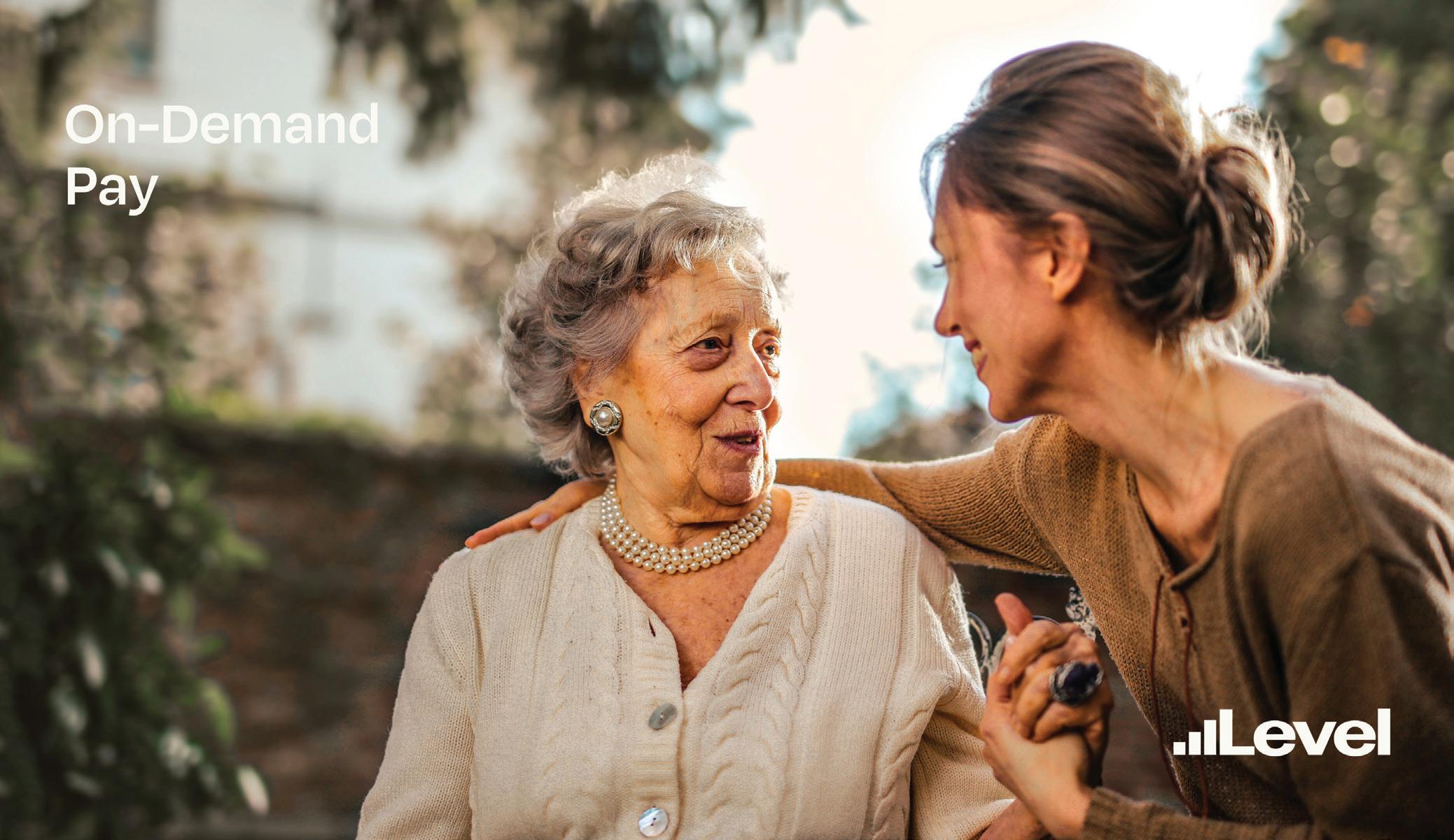
With inflation high and union strikes dominating the headlines, many employers are naturally worried about what they can afford to pay their workers. Despite good intentions, the current economic climate is making it almost impossible to match the expectations many workers have for pay rises. In the care sector, where staff turnover remains an enormous challenge, this mismatch is causing even greater concern.
However, what you pay is only part of the puzzle - when you pay matters as well. By approaching this from a different angle, employers like Home Instead, the NHS and Tesco are taking steps to reduce staff turnover and increase wellbeing by putting their employees in control of when they are paid.
On-Demand Pay is a new technology that enables workers to access some of their earned income any day they need, rather than having to wait until payday. This provides a debt-free solution for dealing with unexpected expenses and helps solve personal cash flow issues.
Interestingly, many of these care homes and agencies have almost eliminated unfilled shifts. While they haven’t increased their hourly rate of pay, by compensating overtime immediately, they have made the link between work and reward much clearer. This incentivises overtime with a more tangible reward, without increasing the wage bill.
Perhaps most innovatively of all, new technology now enables this in a way that doesn’t impact the payroll systems and cash flow of employers. Payroll simply runs
as usual, and everything else is handled automatically by the OnDemand Pay provider.
With On-Demand Pay already commonplace in America and many British sectors like retail, in addition to its recent launch at care giant Home Instead, the technology feels increasingly inevitable for care providers, both big and small. The hope is that, as well as supporting staff through this awful cost-ofliving crisis, innovative technology like this might finally help crack the high turnover that’s plagued the UK care industry for decades.
Archie Heaton is Head of Growth at Level, a UK On-Demand Pay provider focused on the care sectors. Customers include Home Instead, Bluebird and the NHS. www.levelft.com
TECHNOLOGY
carehomemagazine.co.uk 8
BENEFITS TO YOUR CARE HOME

Cost savings and scalability
Enhanced resilience
Caring for your communications
Is your care home ready for the biggest change to communications in a generation?
In 2025, the way we connect to the internet and use voice services will change forever. Traditional analogue and broadband lines will be retired and replaced with reliable, hosted voice powered by full-fibre connectivity. If you’ve not yet made the switch, now is the time to do so.
Switch on to full-fibre and feel the benefits today.
T: 01223 661636
E: enquiries@cambridgetelecom.com
W: cambridgetelecom.com/care-homes
Agile communications
Enhanced care
Improved engagement
Uniting the Care Community
In its third edition this March 20th-21st, UK Care Week stands as a beacon of inclusivity, bringing together care professionals from across the UK to address challenges, celebrate talent, and advocate for positive change within the care sector and we have all the details on what you can expect.
This dynamic event will feature industry-defining content, live product demonstrations, and interactive features designed to equip attendees with the skills to enhance the lives of those under their care.
At the heart of UK Care Week is the commitment to providing care professionals with invaluable resources. With a free ticket, attendees gain access to over 100 CPD conference sessions and workshops, allowing them to immerse themselves in cutting-edge knowledge and best practices. The event also hosts more than 150 leading care suppliers, providing an opportunity to explore innovative products and services that can revolutionize care provision.
The diverse line-up of industry thought leaders will explore the key themes for 2024 including business & facilities, environments, workforce & skills, wellbeing and technology in care. Expect to hear from the likes of Helen Whately, Minister of State in the Department for Health and Social Care, James Tugendhat, CEO of HC-One, Avnish Goyal CBE and Aneurin Brown from Hallmark Care Homes, Dr Jane Townson, CEO of Home Care Association, Professor Martin Green OBE, CEO of Care England, James Bullion, Chief Inspector at the CQC and so many more.
One of the event’s key features is the CQC Inspector Hub, where care professionals can receive
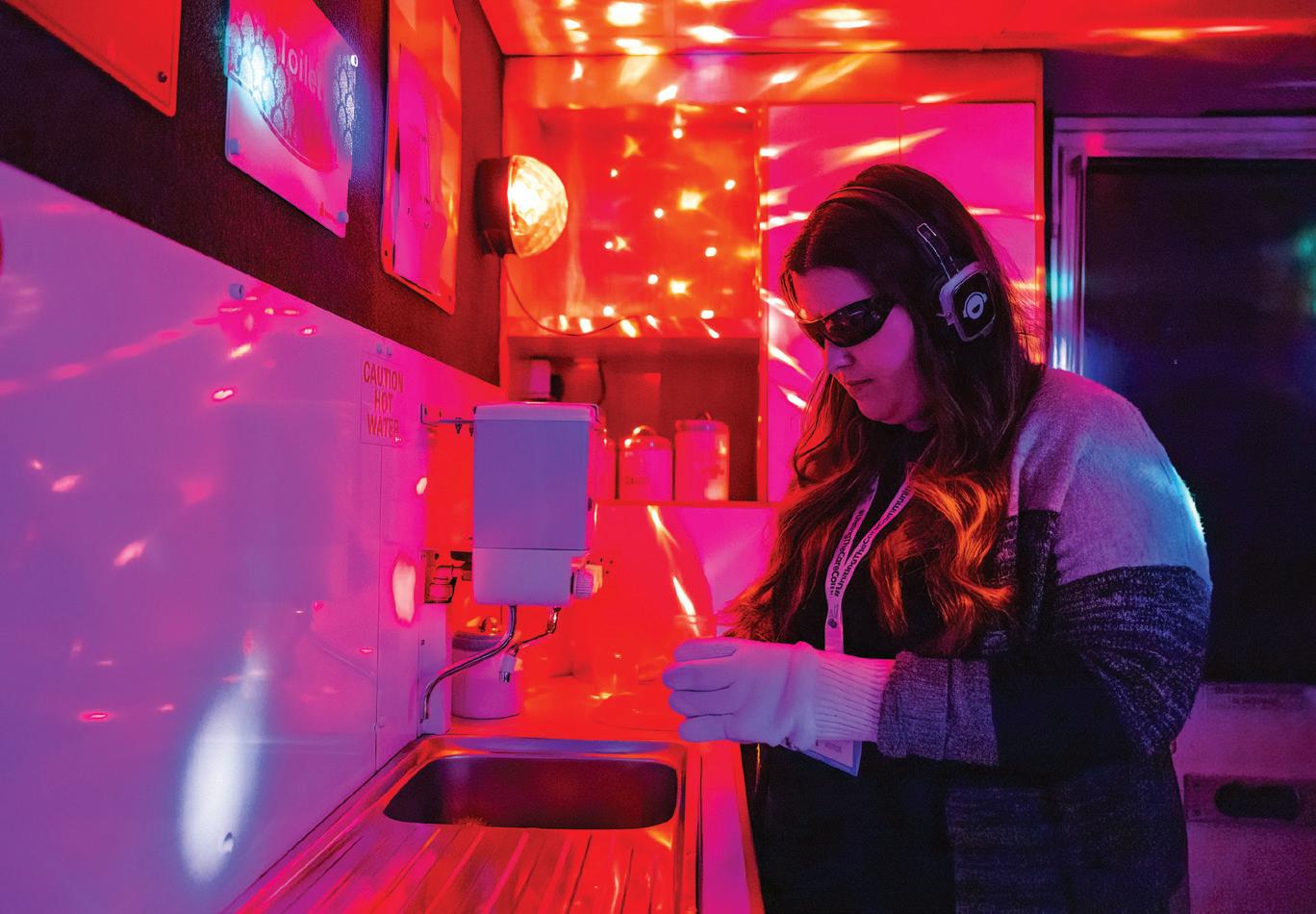
free, tailored advice to ensure their care provision meets the highest standards. This hub addresses registration and inspection queries, offering guidance crucial for maintaining quality care services. Additionally, the Virtual Dementia Tour provides an immersive experience, allowing social care business owners and management teams to gain insights that enhance their approach to dementia care. For attendees seeking interactive experiences, the apetito Lounge continues to be a standout feature at this year’s event. This feature allows visitors to taste popular dishes and discover award-winning, texture-modified meals and Finger Food Bites specifically designed for residents with dementia.
The event’s inclusivity is further highlighted by its commitment to
networking opportunities. With over 2,500 care, home care, nursing, and residential homeowners, directors, and senior management teams in attendance, UK Care Week provides a platform for collaboration and idea-sharing. To ensure that the event remains tailored to the needs of its attendees, UK Care Week conducts an annual National Care Awareness Survey. Drawing insights from over 700 care professionals in 2023, the survey informs the themes of the show, ensuring that it aligns with the goals and concerns of those within the care sector.
Attendees of UK Care Week 2024 can expect not only to gain valuable skills and knowledge but also to be part of a transformative experience that celebrates the dedication and talent of care professionals nationwide.
SHOW PREVIEW
carehomemagazine.co.uk 10
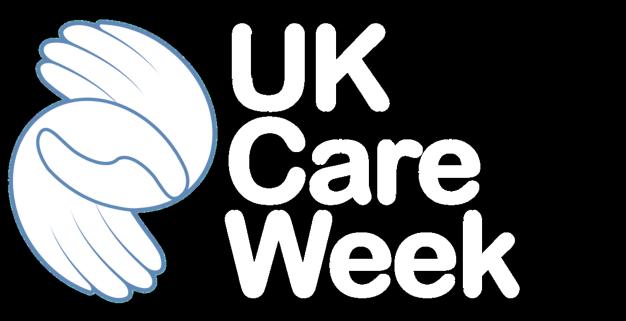











20-21 March 2024
UNITING THE CARE COMMUNITY UKCAREWEEK.COM
NEC Birmingham
Amrit Dhaliwal CEO of Walfinch
James Bullion Chief Inspector of Adult Social Care and Integrated Care at the CQC
Professor Martin Green OBE CEO of Care England
Helen Whately Minister of State in the Department for Health and Social Care
James Tugendhat CEO of HC-One
REGISTER FREE
Dr Jane Townson CEO of Homecare Association
A Saving Strategy
Miele Professional helps The Orders of St John Care Trust streamline its laundry servicing, resulting in excellent savings.
The Orders of St John Care Trust is one of the UK’s leading not-for-profit care providers, providing trusted care, support and housing to residents and tenants across over 60 locations. The sole purpose of The Orders of St John Care Trust is to provide the best possible care to those who live with them – some of the most vulnerable people in society.
Looking to reduce downtime and costs with its laundry machines, the Trust wanted to adopt a streamlined approach to laundry servicing throughout the entirety of its homes. Graham Hipwell, Property Surveyor at the Trust, explains: “When laundry equipment breaks down in a care home, it really affects the dayto-day running of the home; so, across the Trust this was a high priority. For more consistency, we wanted one service contract that could support all our sites across the country and maintain them, rather than with multiple partners. That way, we would only have one point of contact, resulting in easier communication”.
Aware of Miele Professional’s reputation for outstanding customer service, the Trust turned to Nicola Whittaker, national account manager at Miele Professional, to create a strategy together which would identify the Trust’s needs. Speaking on their collaboration, Nicola said: “We worked with The Orders of St John Care Trust to create a new contract that would centralise the management of its laundry servicing, in hopes to decrease breakdowns and improve first time fix rates”.
Nicola continued: “The

introduction of our strategy has been a great success, raising their first-time fix rates to 95%, as well as providing greater transparency of costs and usage to the customer.
Within one year, we helped The Orders of St John Care Trust save over 10 times what they projected, thanks to the reduction of breakdowns in their laundry machines”.
On the topic of costs, Graham added: “When we get a machine serviced by Miele, the likelihood of that machine breaking down again is significantly reduced, resulting in greater savings. As we are a not-for-profit organisation, any savings made because of Miele can go back into the Trust where other purchases can be made for the residents. Thanks to our new strategy, we can forecast our budget for the next 10 years based on the cost of Miele’s machines”.
Additional to the benefits delivered, The Orders of St
John Care Trust have also been impressed with the Miele Professional team. Graham commented: “We have created a rewarding relationship with Nicola and Miele Professional, it isn’t something you often find in a commercial setting. I believe this is due to Miele’s values as a family business, embodying transparency and trust. Thanks to this relationship, the dedicated support we receive and the great reduction in costs; we have extended our contract to dishwashing and ironing with Miele equipment throughout our entire estate of care homes across the country”.
At Miele Professional, we provide tailored service contracts to meet your business’ individual requirements. If you have any questions or need individual advice, contact us at https:// www.miele.co.uk/p/servicecontracts-3096.htm.
LAUNDRY
carehomemagazine.co.uk 12


Enhance residents and families experience with an easy-to-use app which allows families to receive your updates as well as regularly send news to their loved one. All this digital content is printed as a personalized gazette for their loved one to enjoy and keep. A gazette to maintain the family bond and strengthen interactions between the residents and your team.
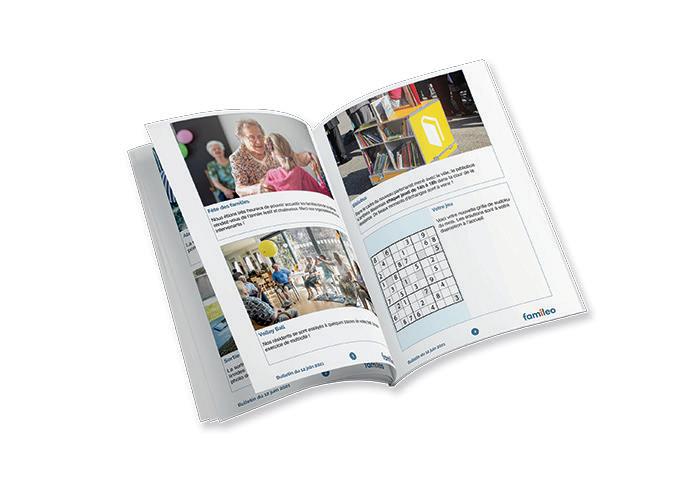
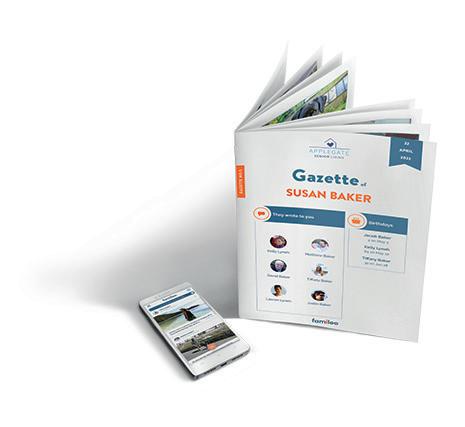
Food and Nutrition

carehomemagazine.co.uk 15
Essential 5
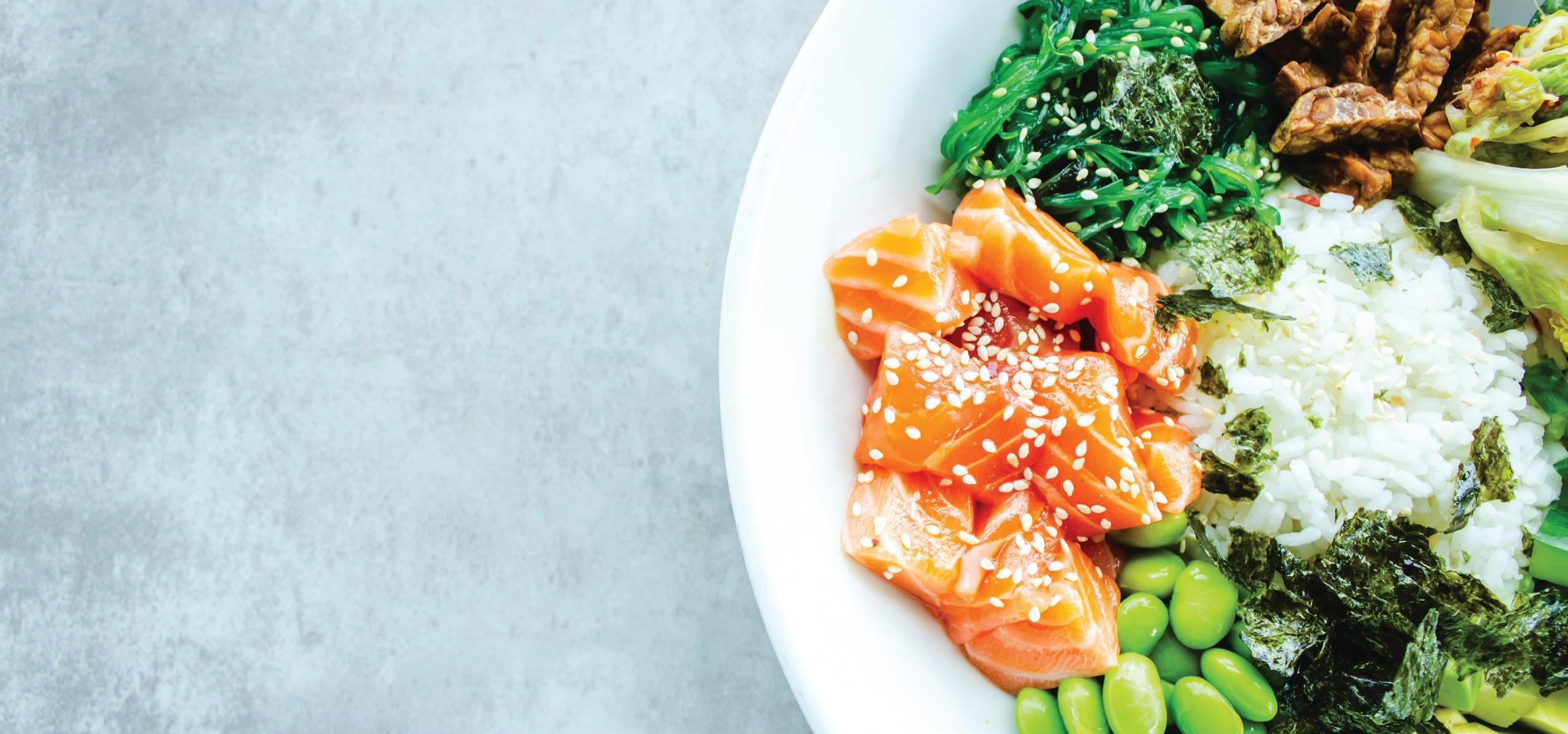
Promoting nutrition in care homes is essential for the wellbeing of residents. In line with this, we share five innovative menu ideas to work to achieve this.
2 1
Theme Days with Global Cuisine
Introduce themed days inspired by different cuisines from around the world. For example, have a “Mediterranean Monday” featuring dishes rich in olive oil, whole grains, and fresh vegetables, or a “Japanese Thursday” with sushi rolls, miso soup, and grilled fish. This approach not only adds variety to the menu, helping to excite residents, but it also helps to incorporate diverse nutrient profiles, promoting a balanced diet.
Farm-to-Table Initiative
Partner with local farms or nearby community gardens to enable you to source fresh, seasonal produce. Incorporate these ingredients into the menu, highlighting the flavours of each season, helping to initiate interesting conversations. Residents can also participate in gardening activities, fostering a sense of connection to their food and promoting physical activity. This initiative supports nutrition by providing access to high-quality, minimally processed foods which will contribute to greater health benefits.
3
Interactive Cooking Workshops
Organise cooking workshops where residents can actively participate in meal preparation at the home. Get your chefs or kitchen staff involved to include demonstrations on simple, nutritious recipes that they can recreate independently or with assistance. Encourage creativity by allowing residents to suggest ingredient substitutions or modifications based on dietary preferences or restrictions. This interactive approach not only promotes nutrition but also enhances socialisation and cognitive function.
4
Superfood Showcase
Dedicate a day each week to highlight a different “superfood” known for its nutritional benefits. Feature dishes incorporating ingredients such as kale, quinoa, blueberries, or salmon. Provide educational materials explaining the health benefits of these superfoods, such as their antioxidant properties, omega-3 fatty acids, or fibre content, so residents are familiar with these values. This initiative encourages residents to explore new flavours while learning about the importance of nutrient-rich foods in their diet.
5
Texture-Modified Dining Experience
Develop a menu specifically tailored to residents with swallowing difficulties or other texture-modified dietary needs. Utilise innovative techniques such as molecular gastronomy to create visually appealing and flavourful dishes that meet texture requirements. Offer a variety of options, including purees, thickened liquids, and soft foods, while ensuring nutritional adequacy and maintaining culinary integrity. This approach ensures that all residents can enjoy nutritious meals tailored to their individual needs, promoting overall health and wellbeing.
FOOD AND NUTRITION
carehomemagazine.co.uk 16


Are you looking to ease the daily stresses and strains of your catering without totally outsourcing?
By choosing Signature Elements, running a hassle-free in-house service can be a piece of cake... and importantly with the reassurance of Signature Dining supporting your catering.
From food management to allergen compliance, chef recruitment/training to textured foods presentation with our ‘Dignity on a plate’ ethos, Signature Elements offers you the flexibility to build your own service development package, focusing on the key areas of your service that you would like to enhance, without the expense of outsourcing your food service.
Our award winning and experienced team will work with you and your kitchen teams to refine your elements package and to build a bespoke training and support programme for you, your residents and your catering staff. Money
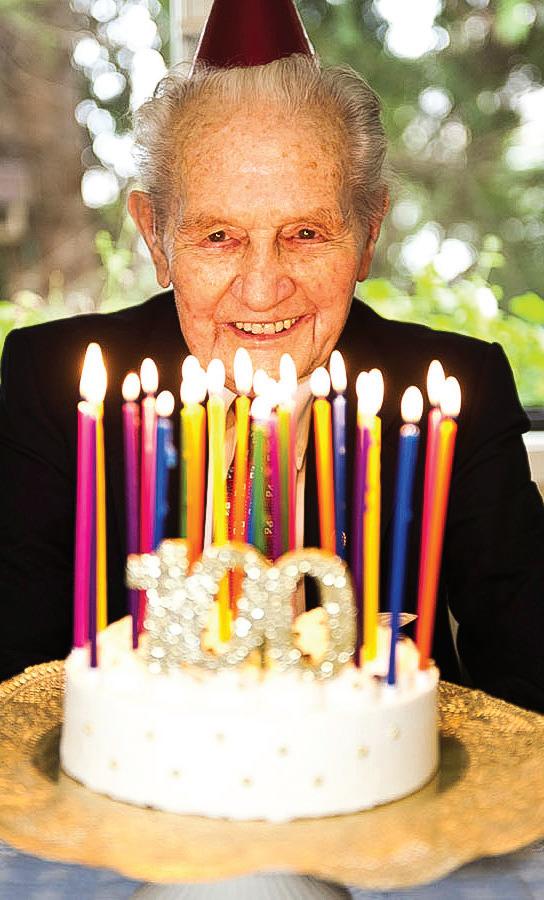


& stock management Budgeting your menus
saving audit Equipment supplies
safety Health & Safety Risk Assessments Mobilisation of your service
kitchen design
packages
support
cover Manager mentoring
and disciplinary E :sarah.h@signature-dining.com T: 07738 981860 E: paul.r@signature-dining.com T: 07714 710707
Menu development Texture modified menus Allergen compliance Marketing & merchandising Taking away the hassle with Signature www.signature-dining.com @signaturedining_official Signature Dining @signaturediningofficial
Level 4 Puree Roast Chicken Dinner
Management Staff Structure Assured purchasing Online ordering
Cost
Kitchen Management Food
Commercial
People Management Staff training
Recruitment
Staff
Grievance
Menu Management
IDDSI
An Important Role
In this insightful piece, with the help of industry experts, we highlight the importance of caregivers in fostering a positive eating environment, and provide tips and training suggestions for caregivers to encourage healthy food choices among residents.
In the intricate tapestry of healthcare provision within care homes, the significance of caregivers extends far beyond the realms of physical assistance and medical support. Amidst the myriad responsibilities they shoulder, one often overlooked, yet profoundly impactful, duty is that of promoting healthy eating habits among residents. The importance of nutrition in fostering overall wellbeing, particularly in the elderly population residing in care facilities, cannot be overstated. As such, caregivers emerge as pivotal agents in the endeavour to cultivate and sustain healthy dietary practices within these environments.
By exploring various strategies, challenges and best practices, this piece aims to underscore the invaluable contribution of caregivers in nurturing nutrition within care homes. From empowering residents to make informed food choices to collaborating with dietary specialists and leveraging innovative meal planning techniques, caregivers wield immense influence in shaping the dietary landscape of care facilities.
As we navigate the complexities of promoting healthy eating habits in care homes, it becomes evident that the role of caregivers transcends mere provision of sustenance; it embodies a holistic commitment to fostering dignity, vitality and quality of life for residents. Through their unwavering dedication and compassionate approach, caregivers epitomise the essence of nurturing nutrition, laying the foundation for enhanced well-being and vitality among those under their care.

Cathy Amos, Head of Customer Marketing at Brakes UK, sees that carers in care homes can prioritise the promotion of healthy eating habits among residents by, “Encouraging residents to see the benefits, offering nutritious options, creating personalised meal plans, encouraging regular meals and social dining, providing assistance as needed, monitoring dietary intake and ensuring residents are well hydrated.”
Meal planning and menu development ensure residents receive balanced, nutritious meals,
accommodating dietary needs and preferences. Cathy said, “Diverse menus stimulate appetite and offer social dining experiences. Efficient planning supports staff in providing timely, appealing meals, fostering an environment conducive to healthy eating habits and overall well-being among residents.
“Residents who are well nourished are likely to be more alert and less likely to suffer from trips and falls and prescribed medication will be more effective.”
With this being said, Cathy outlined the importance of
FOOD & NUTRITION
carehomemagazine.co.uk 18
caregivers ensuring that they fully understand residents’ dietary preferences and restrictions, and commented, “The menu should offer a variety of nutritious options, accommodate special diets and provide support and education to encourage healthier choices. Personalised meal plans and regular monitoring help ensure residents maintain overall health while enjoying their preferred foods.”
You must ensure that meals which are being provided are not only nutritious, but also enjoyable for residents and, to do this, Cathy suggests writing out a balanced menu cycle, “Taking into consideration the guidance of the NHS eats well plate, and making tweaks according to each resident’s specific needs, such as fortification, or medical dietary needs like diabetes.”
Alex Connell, Roving Chef at Vegetarian for Life (VfL), said, “Good menu planning is essential in promoting healthy eating habits for anyone, and particularly important for residents in care homes.
“The very nature of living in a care home is likely to mean less access to shopping and creating your own food. You are relying on the menu provided by the home. If the menu does not have healthy choices that you actually want to eat, then how can we expect healthy outcomes? Menu planning should encompass all dietary choices. For vegans and vegetarians, gaining better knowledge of food preparation, nutrition and, of course, creating those menus in conjunction with individual residents is essential.”
VfL Roving Chef, Ollie Bragg, added, “It’s important to offer choice. Allowing residents to choose from a selection of healthy options can promote autonomy and increase the likelihood of compliance. Carers can find out what individual residents enjoy eating, and then perhaps swap out certain ingredients for something more nutritious or healthy. Sweet potatoes for white potatoes, for instance, or using wholemeal flour instead of white flour or brown rice instead of white rice. Refined
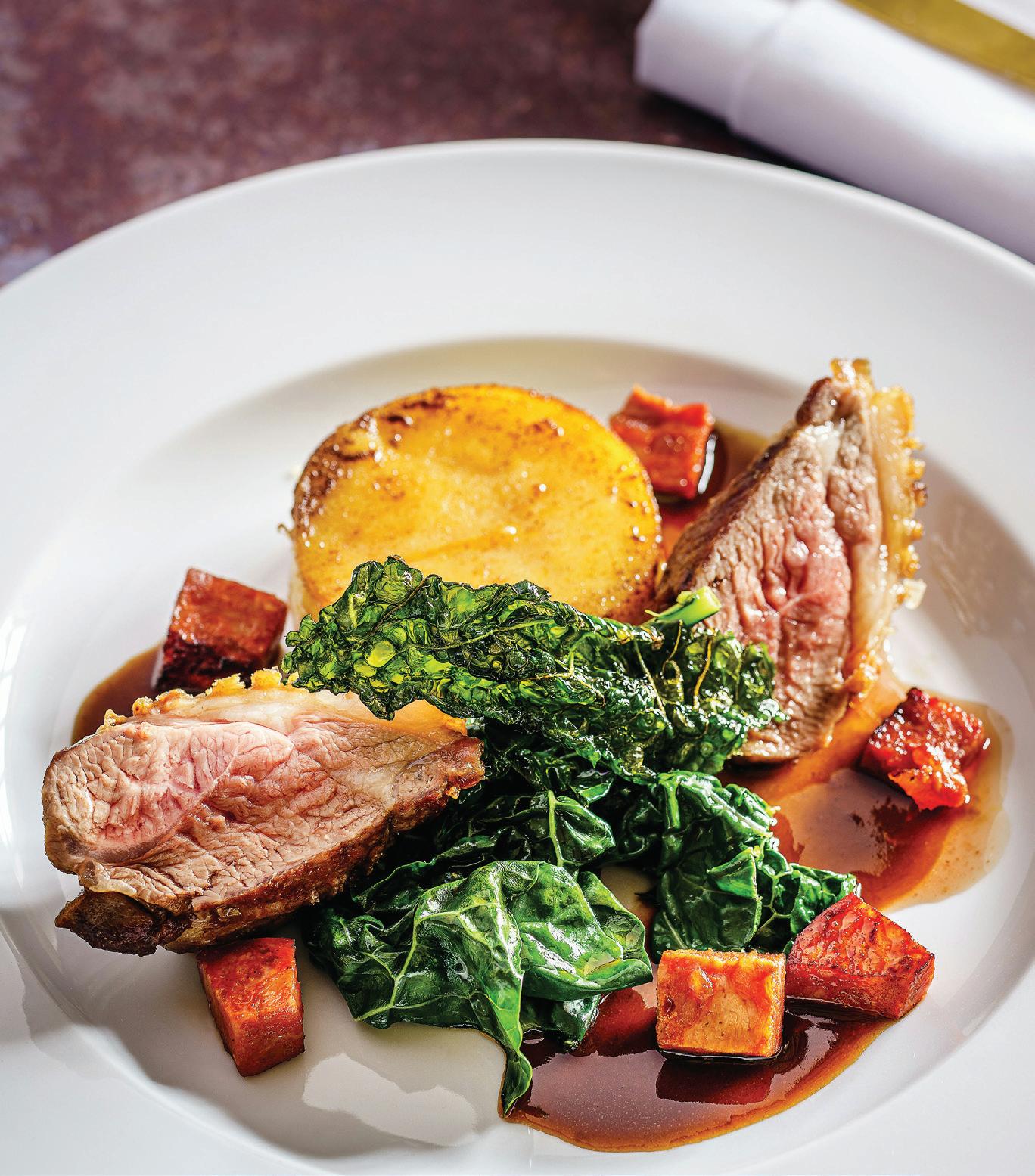
sugars in cakes and treats could be substituted with pureed whole fruit. Have a look at this nutty apple crumble recipe on our website. It’s full of delicious spices, protein and fibre from oats and almonds, with apples and just a small amount of maple syrup providing the sweetness.
“There are other ways to encourage healthy eating and make it a priority in care environments. Carers can ensure that meals are well-balanced, incorporating a variety of fruits, vegetables, lean proteins (such as lentils, chickpeas, tofu, tempeh, edamame, quinoa, seitan, beans) and whole grains,” Ollie concludes.
Alex continues,“As care caterers, we should always keep the people we care for as our prime focus. Dietary preferences can reflect religious or philosophical beliefs, which individuals may have practiced all their life. These dietary choices are protected in law. Some may describe these choices as
restrictions, but for the individual they can be part of who they are as a person. No carer or caterer would maliciously ignore these choices. However, lack of understanding, or even simply being busy, may result in these choices or restrictions being overlooked.
“For vegans or vegetarians, it is easy to create a broad range of delicious, appetising, colourful, culturally appropriate and, of course, healthy dishes. Talking to individuals, and learning more about their choices and preferences, really is the key. The charity, Vegetarian for Life, was specifically set up to support the needs of older vegans and vegetarians. We offer a broad range of services for vegans and vegetarians and also caterers and carers – from inspiring healthy recipes and menu planners through to guides on nutrition, dietary diversity in the care sector and caterer training”
www.vegetarianforlife.org.uk
FOOD & NUTRITION carehomemagazine.co.uk 19
Dining with Dignity
In an insightful interview with Founder of Signature Dining, Paul Robottom, we share details on how the brand is sustainably revolutionising catering services in the care sector.
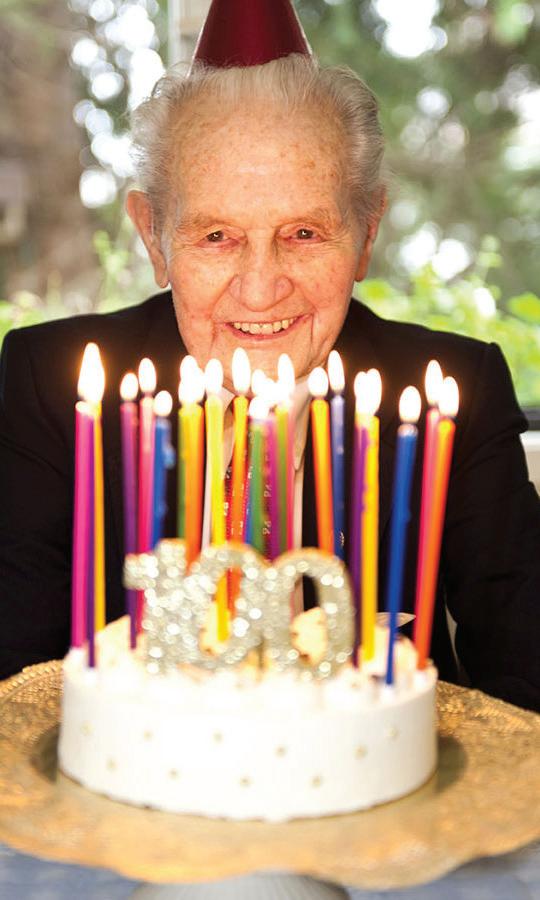
Please introduce Signature Dining to our readers
With a passion and vision to re-invigorate catering in care and healthcare I launched Signature Dining in 2016, bringing a personcentred approach for residents and patients and tailoring the service needs to each individual setting. Having previously worked on senior executive boards in larger organisations, I knew there was a gap in the market to create a company based on providing a fabulous food and service delivery exclusively for the care and welfare market. I carefully developed a team of vibrant and creative people, who share my vision and who consistently go the extra mile to enhance the lives of the residents and the patients that they work 365 days a year.
Myself and the team have

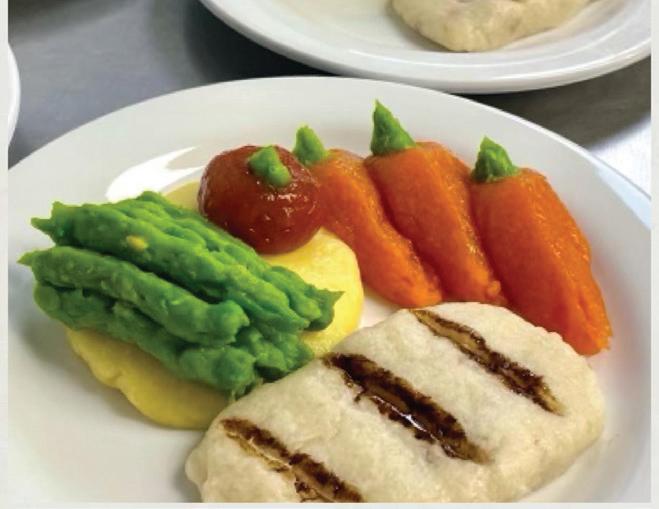
developed a truly bespoke service to Signature Dining’s clients, creating a one-of-a-kind service for each setting, built entirely upon the needs and preferences of the residents and patients. This unique approach has seen Signature Dining become multi award winners, securing the accolades of Public Sector Caterer of the year, Food Services Catey awards and Healthcare Caterer of the year 2023 at the Contract Catering Awards to name but a few as well as being voted ‘best companies to work for’, for the last three years.
What benefits are presented to Care Homes as a result of working with Signature Dining?
Working with us brings our clients a wealth of benefits. Our senior staff team have over 30 years combined


experience in contract catering and have a deep understanding of the importance of a great food service, not just to meet the nutrition and hydration needs of our diners, but in providing valuable social interactions that support resident’s independence and ensure dining with dignity for all.
Our team work closely with our clients, getting to know them and their setting and developing a food service that is entirely unique to them and that meets CQC requirements.
Bringing the fun to food service, our teams develop immersive foodie theme days that are celebrated in true Signature Style. Working with our clients, we tailor our events calendar, marking festivals and special occasions that are important to our diners and their families.
FOOD & NUTRITION
carehomemagazine.co.uk 20


You pride yourself on developing interesting and appetising menus, can you tell us how so and what makes these stand out?
At Signature Dining we understand that menus are more than meals on a plate. Through creative and meaningful menu planning, we are able to meet the nutrition and hydration needs of our residents, offer them a great variety of choice and give them the flexibility to change their mind whenever they may wish to. We meet with residents and their families, getting their input into the menus and giving each diner a sense of ownership of the menus…after all, we are cooking in their own home. Our menus are developed with a cooked fresh from scratch ethos and feature the best seasonal, locally sourced produce. Our menus feature classic dishes, cooked to traditional recipes, and served with a contemporary twist. Celebrating favourite dishes of the residents at each setting, our menus echo the flavours of yesterday, connecting residents with precious memories from their past.
As passionate promoters of Dining with Dignity, it is essential to us that our menus are fully
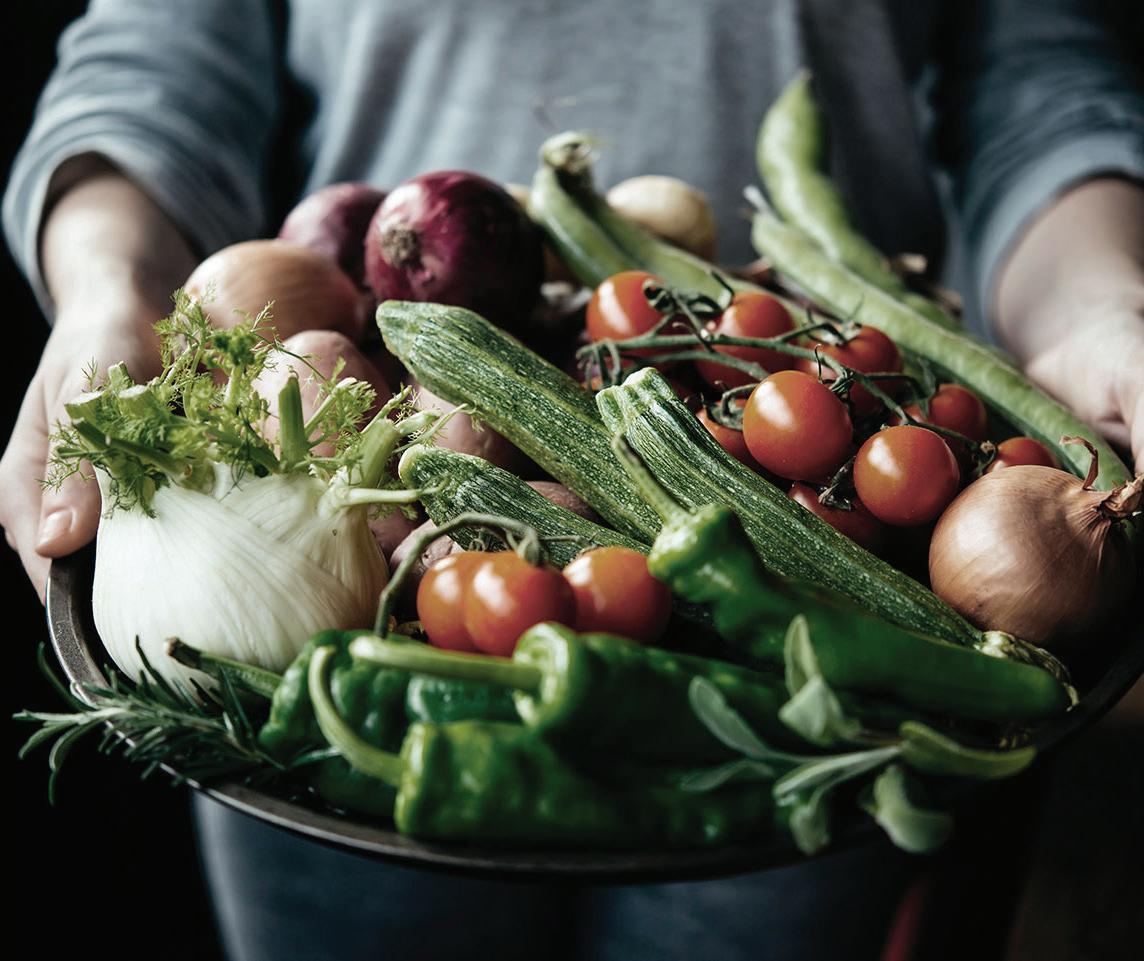
adaptable for residents with swallowing difficulties. All Signature Dining chefs have received extensive, specialist training in modifying menus following the IDDSI framework, and are skilled at hand piping texture modified meals, creating dishes that look identical to their standard menu counterparts.
Can you tell us about Signature Dining’ssustainability efforts?
Sustainability is very important to us. Working with regional/local suppliers who source local produce supports us as we strive to reduce food miles. Our fresh produce is predominantly UK grown- in fact 95% comes from these shores, and comes to us in cardboard packaging, without the need for single use plastics.
Working in partnership with our clients, we adopt the site recycling programmes. Our teams separate and recycle all cardboard packaging, and where plastic packaging is essential, will reuse or recycle. As a company we avoid using disposables, serving all of our meals on china plates and our bespoke hospitality on reusable platters, trays, and slates. Where disposables are needed, for
example for a packed lunch for a hospital visit or picnics, sustainable products will always be used.
Reducing food waste is a key part of our sustainability promise. Not only does this reduce the waste that goes into landfill, but it also ensures that we give clients best value by using as much of any given product as we possibly can. Careful menu planning helps our chefs to make the most of our fresh produce, using meat bones to make stocks and gravies and vegetable off cuts to make soup.
How easy is it for a Care Home to work with you? Can you tell us about the process?
At Signature Dining we take the hassle out of catering for our clients, meaning that they can focus on providing the best care to their residents while we take care of the food. Our teams become true partners with their clients and their care teams, working with them to deliver a service that is tailored for their care home community. We manage all the day-to-day running of the food service, ensuring that the staff are well supported, and that the kitchen is fully complaint with food safety legislation.
www.signature-dining.com
FOOD & NUTRITION carehomemagazine.co.uk 21
Dishing Up
Bidfood have a passion for outstanding food, something we share with all our customers. In line with celebrating Nutrition and Hydration Week this March, we share another delicious recipe for you to follow, this time –tomato lentil soup.

We are always focused on going the extra mile and by being one of the UK’s leading foodservice providers, and experts within the care sector, it’s of paramount importance to ensure that this passion filters through not just to our customers, but to care home residents too.
Providing great service is more than simply dropping off deliveries, it’s about adding value and helping our care customers to cater with confidence and stay ahead of the curve. Whether that’s through our industry knowledge, or leveraging our expertise on nutritional advice and guidance on food standards and legislation, it’s all part of our mission to deliver service excellence and help our customers grow.
With years of experience and knowledge between them, our dedicated care team provide operators with support on hydration, dementia, diabetes and IDDSI meals, as well keeping up to date with the latest trends in care. Our chef team have even developed an enormous 500+ recipes providing plenty of inspiration to ensure residents have
something tasty on their plate throughout the day.
As the weather gets warmer and the days grow longer, the signs show that spring is right around the corner. But it’s not just brighter days that the first weeks of March bring with them, from the 11th to the 17th we celebrate Nutrition and Hydration Week, the annual event that highlights and promotes the importance of good nutrition and staying hydrated.
Nutrition and hydration are essential to resident’s health and wellbeing and can help prevent malnutrition and dehydration, which in turn helps to reduce the strain on care homes whilst keeping residents healthy and happy!
The week itself presents a great opportunity for care residents and staff to come together, get creative and have some fun whilst helping to raise awareness of this important topic. Why not get your residents to make and stick posters around their care home highlighting the importance of staying healthy and reminding others to drink regularly? Or perhaps turn hydration week into a competition, encouraging residents to keep a tally on how
Ingredients
02637 Mature White Cheddar
Cheese 200g
70350 Basil 5g
48576 Chopped Tomatoes 1kg
03435 Vegetable Oil 25ml
04666 Vegetable Bouillon Paste
25g
05636 Tomato Paste
Concentrate 50g
30271 Garlic Puree 20g
56614 Red Lentils 250g
75667 Oregano 5g
75585 Onion 150g
75331 Carrots 150g
75197 Courgette 200g
Method
1. Gently heat the oil in a pan and add the onions and carrots cooking until tender.
2. Add the garlic and herbs and fry for a couple of minutes.
3. Add the chopped tomatoes, tomato puree, and vegetable stock and bring to the boil then allow to simmer.
4. Wash and cook the lentils and set to one side.
5. Finely slice the courgette.
6. Blend until the soup reaches the correct consistency and then add the lentils, courgettes, and cheddar and fold through.
many glasses of water they can drink throughout the week.
The well-known and much loved Global Afternoon Tea Party on Wednesday the 13th of March is a great way to kick things off. Offer your residents a scone with jam and cream alongside their afternoon tea or coffee and start spreading the joy during this important week!
For a hydrating meal, packed full of nutrients, give our tomato and lentil soup a try, it’s perfect for lunch or dinner, can serve large numbers and is easily adapted to cater for individual requirements and allergies, your residents will love it!
For more on Nutrition and Hydration Week as well as our other support tools for the care sector, visit this link www.bidfood.co.uk/care-homes/
FOOD AND NUTRITION
carehomemagazine.co.uk 22
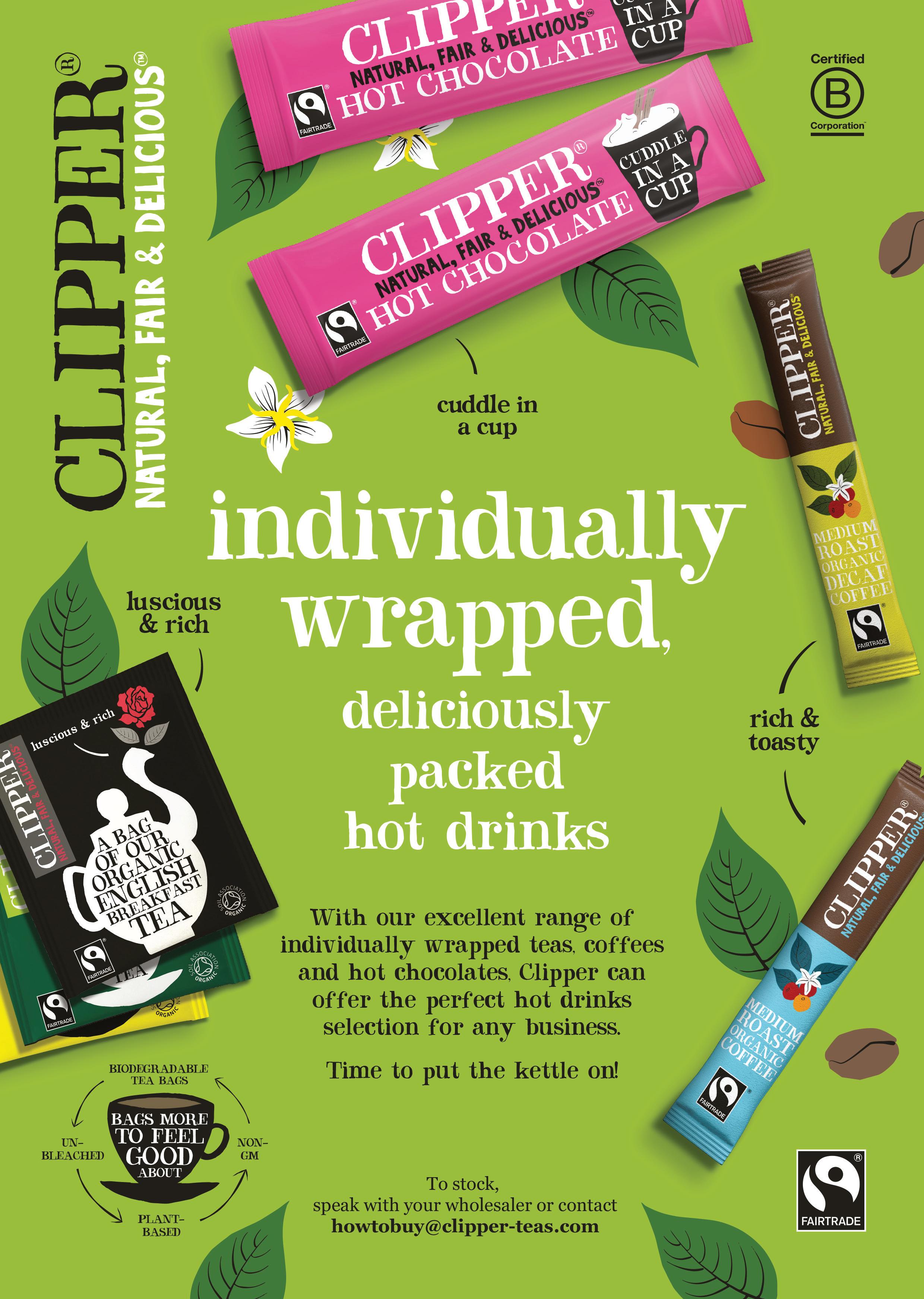
Malnutrition Amongst Older Adults
Rachael Venditti RNutr from allmanhall, the leading independent food procurement specialist, highlights some of the signs of malnutrition amongst older adults and offers nutritional advice on its prevention.

Malnutrition amongst older adults can impact on an individuals’ physical and mental health and overall quality of life in both the short and longer term. Malnutrition simply means ‘poor nutrition’ and can refer to a range of nutritional concerns. Usually in the context of older people malnutrition is characterised by low body weight or weight loss, suggesting that affected individuals are not eating well enough to maintain their health and wellbeing. Although the negative impacts of malnutrition can start within 2-5 days of poor intake in an older adult, the associated unintentional weight loss may not be noticed until weeks or even months later when that person’s biological functioning has been severely negatively impacted.
Signs and symptoms
Typical signs of malnutrition include
weight loss which may be sudden or could be more gradual. It is often associated with ill health, hospital admission, and a general loss of interest in food. Other more subtle signs include clothes and jewellery becoming looser and dentures suddenly not fitting. It is also associated with a range of longterm conditions such as dysphagia (swallowing problems), cancer, chronic obstructive pulmonary disease (COPD), dementia and physical disability. In the short term it can also lead to a weaker immune system, increased risk of pressure sores, poor wound healing and muscle weakness which can lead to falls and fractures.
Care home caterers are in a unique and advantageous position to be able to positively influence their residents’ risk of malnutrition through providing enticing and nourishing food in their menus.
What can care home caterers do?
1. Create a ‘high energy, high protein’ menu for those identified at-risk of malnutrition which includes fortified meals, snacks and drinks with nutrient dense foods such as added cheese, milk powder, nut butters, ground almonds, Greek yoghurt.
2. Always use full fat foods such as milk, yoghurt and cheese. Make fortified milk to increase protein and energy intake by adding 4tbsp milk powder to 1pint full fat milk. Use this milk in your ‘high energy, high protein’ meals and in drinks for residents who have been identified as at-risk of malnutrition
3. Consider offering a ‘lighter’ option at each mealtime for those who find large meals overwhelming and who would benefit from a ‘little and often’ approach.
4. Offer enticing snacks along with the tea trolley such as cakes and biscuits, and milky drinks and fortified smoothies.
5. Ensure that a high energy pudding is on offer twice daily such as sponge and custard or ice cream.
6. Ensure that additional snacks are always available for those who may find themselves hungry between meals or overnight.
7. Consider a multivitamin and minerals for residents who struggle to eat well at meals.
FOOD AND NUTRITION
carehomemagazine.co.uk 24

Join the conversation: #CareShowLondon24 @CareShow @CareShows /Care-Show Join us in the capital for the Care Show London! You can expect the same inspiring and forward-thinking experience that you get at the Care Show Birmingham. 24-25 April 2024 ExCeL London Register now! The Care Show is coming to London in 2024 Access all areas Organised by: Register your interest! Scan the QR code or visit www.careshowlondon.co.uk/chmag
A Stylish Solution
Enhancing care home comfort with Douwe Egberts Cafitesse coffee machines.

In the area of care homes, where comfort and convenience are paramount, the inclusion of a Douwe Egberts Cafitesse Coffee machine can elevate the residents’ experience while simplifying operations for staff. Carefully designed to cater to various needs within a care home setting, the Cafitesse range offers a plethora of benefits that make it an indispensable addition to any facility.
At the heart of the Cafitesse range lies innovation geared towards efficiency and quality. Let’s delve into the features and advantages of each machine within this versatile line up.
Quantum: Quick and Fresh Brews
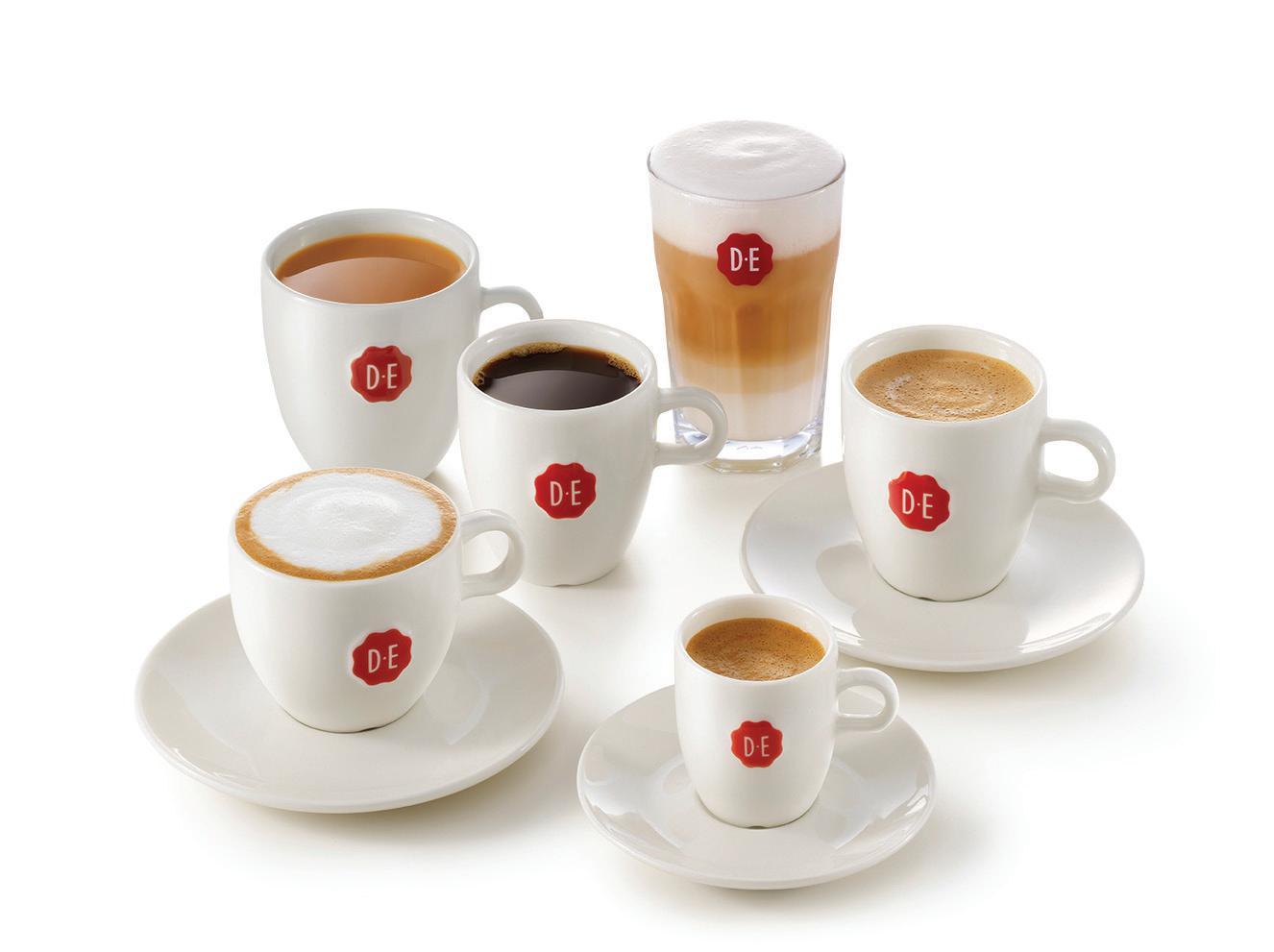
The Quantum models stand as the epitome of swift and fresh coffee delivery, ideal for kitchens and back of house operations. Caregivers and staff can rely on the Quantum to whip up pots of coffee promptly, ensuring that residents and visitors alike are treated to a delightful hot beverage whenever they desire. With its rapid brewing capabilities, the Quantum caters to the demand for efficiently served hot coffee, offering a comforting touch that enhances the overall atmosphere of the care home. Its ease of use and consistent quality make it a favourite among
staff, enabling them to focus more on resident care rather than intricate coffee preparations.
Excellence Touch: Variety at High Speed
In high footfall areas where diversity is key, the Excellence Touch shines brightly. This advanced machine not only delivers coffee quickly but also offers a wide variety of choices, catering to different tastes and preferences among residents.
From rich espressos to creamy cappuccinos, the Excellence Touch ensures that every individual can find their perfect brew without delay. Its intuitive interface makes navigation effortless, allowing residents to indulge in their favourite hot beverages with just a simple touch.
Compact Touch: Quick, Versatile, and Indulgent
For versatility coupled with speed, the Compact Touch emerges as the ideal solution. This compact
RESIDENT EXPERIENCE
carehomemagazine.co.uk 26
yet powerful machine not only satisfies the craving for coffee but also extends its capabilities to include delicious hot chocolate options—a delightful treat for residents seeking a bit of indulgence.
Despite its smaller footprint, the Compact Touch doesn’t compromise on performance. It effortlessly churns out a variety of beverages, from steaming cups of coffee to velvety hot chocolates, ensuring that residents can enjoy a diverse range of comforting drinks without hassle.
Hygienic and Low Maintenance
One of the stand-out features of the Cafitesse range is its unwavering commitment to hygiene and low maintenance. In a care home environment, where the health and safety of residents are paramount, the Cafitesse machines offer peace of mind.
With their innovative design and advanced technology, these machines uphold the highest standards of cleanliness, mitigating the risk of contamination and ensuring a safe drinking experience for vulnerable residents. Additionally, their low maintenance requirements alleviate the burden on staff, allowing them to allocate
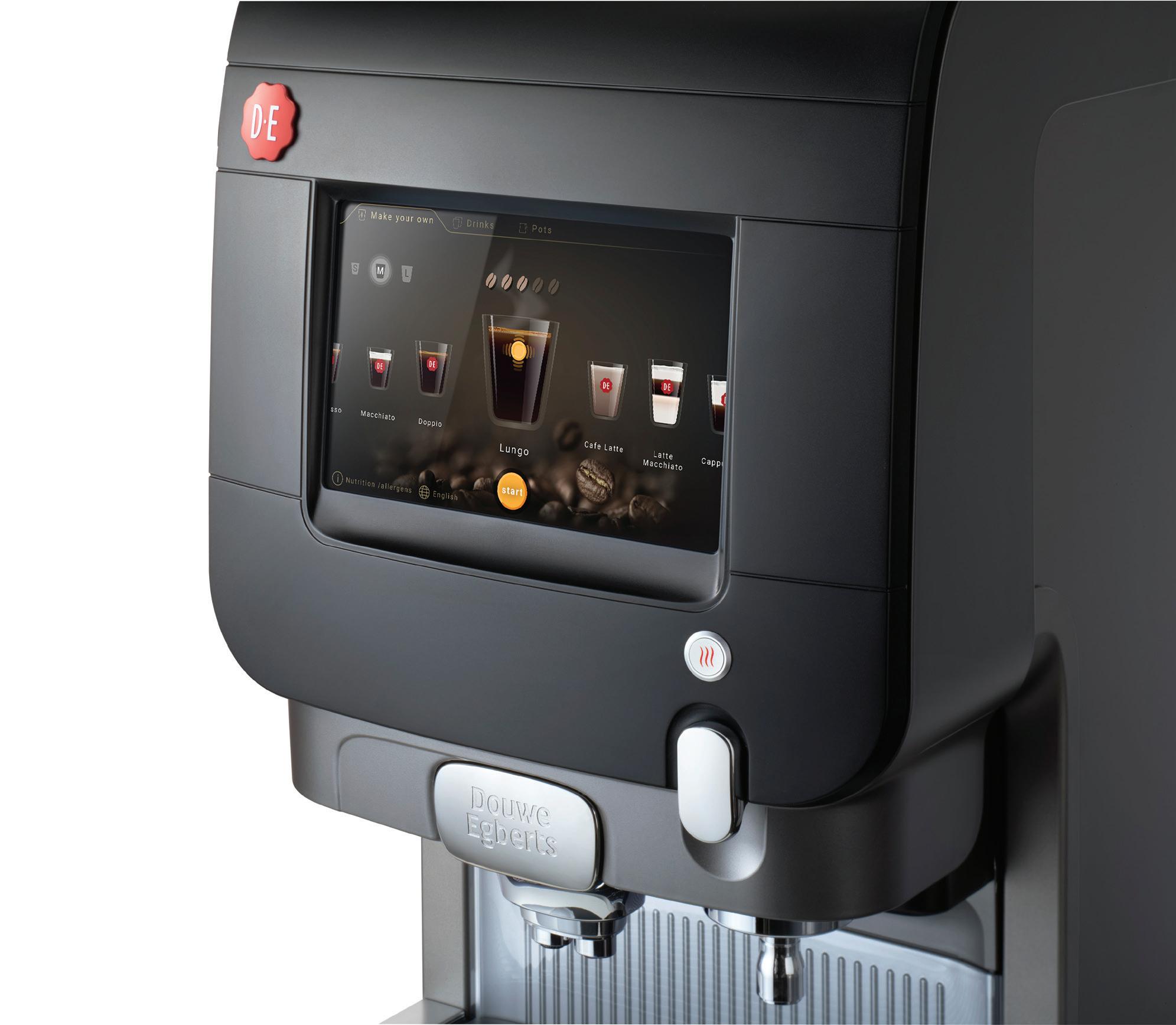
more time to resident care rather than machine upkeep.
Nutritional Benefits
Beyond convenience and hygiene, the Cafitesse range also presents nutritional advantages, particularly for residents with specific dietary

needs. The inclusion of milky drinks provides a valuable avenue for increasing calorie intake—a crucial aspect of care for individuals requiring additional nutritional support.
By offering a diverse array of beverages, including milk-based options, the Cafitesse machines contribute to the overall well-being of residents, helping them maintain optimal health and vitality.
In conclusion, the Douwe Egberts Cafitesse Coffee machines stand as invaluable assets within care home settings, revolutionizing the delivery of hot beverages while prioritizing convenience, hygiene, and resident satisfaction. From the swift and fresh brews of the Quantum to the indulgent versatility of the Compact Touch, each machine within the Cafitesse range plays a vital role in enhancing the comfort and quality of life for residents. With its seamless blend of innovation and functionality, the Cafitesse range exemplifies the perfect marriage of technology and compassion in the realm of elderly care.
RESIDENT EXPERIENCE carehomemagazine.co.uk 27
Virtual Reality
Life at a care home doesn’t have to be limiting. E-Care Services enriches the experiences of the elderly through viable tech. This March, featuring as our Activity of the Month, Dean Joel, Business Development Director at E-Care Services shares all the details on how the product works.
E-Care services is a home care business based in East London, with vision is to enrich the lives of the elderly community with interactive technology, core clinical products and services that take care of everyday challenges. We aim to build a partnership with private and government funded care homes across the U.K that allows us to provide a number of services that benefit the residents and the community. We work with the NHS and local authorities to alleviate pain and stress in the community.
Virtual reality can transport residents to different places and times, allowing them to escape the physical limitations of their surroundings. These experiences can evoke positive emotions, reduce feelings of loneliness or boredom, and enhance overall emotional wellbeing.
With our sensational virtual reality “Magic Goggles” headset, residents can transform their environment in one simple motion. Virtual reality (VR) is a technology that creates a simulated environment using computer-generated visuals, sounds, and sometimes other sensory stimuli to provide a realistic and immersive experience for the user. While there are various types and models of VR products available, I’ll provide a general overview of how virtual reality typically works:
Head-Mounted Display (HMD): The core component of a VR system is the head-mounted display, often referred to as an HMD. Users wear this device over their eyes, which contains small displays

that show the virtual environment.
Tracking System: To enable interaction and movement within the virtual environment, VR systems use tracking systems. These systems can employ various technologies, such as external sensors, infrared cameras, or inside-out tracking, to detect and track the user’s position in physical space. This tracking data is crucial for accurately rendering the user’s movements within the virtual world.
Input Devices: VR experiences often involve user interaction, and for this purpose, VR systems incorporate input devices. These devices can include handheld controllers, data gloves, or even fullbody suits with sensors.
Computer or Console: Behind the scenes, VR products rely on powerful computers or gaming
consoles to generate and render the virtual world. These devices process graphics, audio, and other data required to create a seamless and responsive VR experience.
Software and Content: Virtual reality requires software that generates the virtual environment and coordinates the interaction between the user and the system. VR applications and games are specifically designed to take advantage of the immersive capabilities of the technology. These programs utilise various rendering techniques, including stereoscopic 3D, to provide depth perception and create a sense of realism.
In summary, virtual reality products combine sophisticated hardware, such as head-mounted displays, tracking systems, and
ACTIVITY OF THE MONTH
carehomemagazine.co.uk 28
input devices, with powerful computing devices and specialised software to transport users into immersive and interactive virtual environments.
Virtual reality (VR) can evoke a wide range of emotions among care home residents, including excitement and joy. VR experiences have the potential to create a sense of wonder and excitement, transporting residents to entirely new environments and allowing them to engage in activities they may not have access to otherwise. The immersive nature of VR can result in feelings of joy and delight.
Virtual reality can provide residents with the opportunity to explore new places, cultures, or historical events. This sense of exploration can pique their curiosity and ignite a desire to learn more about the virtual world they are experiencing.
VR can also offer calming and relaxing experiences. Virtual environments such as peaceful nature scenes, serene underwater worlds, or meditation spaces can help residents reduce anxiety, stress, and promote a sense of tranquillity.
The use of virtual reality can foster social interaction among care home residents, even if in a virtual space. Multiplayer experiences or shared virtual environments enable residents to connect with others, collaborate on activities, and engage in meaningful conversations, combating feelings of loneliness and isolation.
It’s important to note that individual reactions to virtual reality may vary, and not all residents will experience the same emotions. Careful consideration of each resident’s preferences, limitations, and well-being is necessary when implementing VR technology in care home settings.
Collaborating with staff at care homes as an external facilitator can be a rewarding and valuable experience. There are some key considerations and approaches that we aim to make in order to create a collaboration successful, which include: establishing a respectful

and empathetic approach. We recognise that care home staff are professionals dedicated to providing care to residents. We aim to approach the intended collaboration with respect, empathy, and understanding for the challenges they face daily.
Our goal is to take the time to build relationships with care home staff. Engage in open communication, actively listen to their perspectives, and show genuine interest in their work. Building trust and rapport will enhance collaboration.
At E-Care Services, we aim to familiarise ourselves with the specific needs, challenges, and protocols of care homes. This understanding will help us adapt our facilitation style and content to align with their circumstances and goals.
We emphasise the importance of staff involvement and participation in decision-making processes. Care home staff possess valuable insights and expertise, so involving them in discussions, problemsolving, and planning allows us to foster ownership and engagement.
Each care home is unique, and the success of collaboration depends on understanding their specific needs and working in partnership with their staff. By applying these approaches, we can foster a positive and productive
collaboration with care home staff as an external facilitator.
The reactions of residents to E-Care Services in care homes can vary widely depending on individual preferences, comfort levels with technology.
We have had a plethora of positive reactions. Some residents welcome the integration of E-Care Services into their care routine. They appreciate the convenience and accessibility these services provide, such as the ability to connect with medical professionals remotely, access health information, or engage in virtual activities. But not all residents embraced E-Care Services initially, particularly if they have limited experience with technology or prefer face-to-face interactions. Some have expressed concerns about privacy, data security, and the potential loss of personal touch in their care. We aim to work alongside care providers to address these concerns, provide proper training and support, and maintain open communication channels to alleviate any reservations.
It’s worth noting that the actual reactions of residents to E-Care Services can vary significantly depending on factors such as their age, technological literacy, health conditions, and personal preferences.
ACTIVITY OF THE MONTH carehomemagazine.co.uk 29
Essential 5

Budgeting is crucial for care homes to ensure financial stability and provide quality care to residents. Here are five budgeting techniques and best practices for care homes.
Zero-Based Budgeting (ZBB)
Zero-based budgeting requires every expense to be justified for each budgeting period, starting from zero. Implementing this method ensures that every pound spent has a purpose and aligns with the care home’s goals and priorities. Look to allocate resources based on the needs of residents and the facility, rather than simply continuing previous spending patterns.
Forecasting and Monitoring
Develop accurate forecasts based on historical data, occupancy rates, and expected changes in costs and revenues. Regularly monitor actual performance against these forecasts to identify variances and take corrective actions promptly. In line with this, look to use financial management software or tools to track expenses, revenue streams, and other financial metrics in real-time for better decision-making.
3 2 1
Cost Control Measures
Implement cost control measures to optimise spending without compromising the quality of care for your residents. This could involve negotiating better rates with suppliers, reducing unnecessary expenses, and finding opportunities to increase operational efficiency. Spending time to regularly review expenses such as staffing, utilities, and supplies to identify areas where costs can be reduced or better managed, will also benefit you long-term too.
4
Revenue Diversification
Look to explore opportunities to diversify revenue streams beyond basic care fees. This could include offering additional services in your home such as specialised therapies, wellness programs, or personalised care packages.
Seek out partnerships with community organisations, healthcare providers, or government agencies to access funding or grants that support your care home’s mission.
5
Investment in Staff Training and Development
Single-handedly one of the most important investments out there - investing in staff training and development programs to enhance skills, improve productivity, and reduce turnover. Well-trained staff can provide better care, resulting in higher resident satisfaction and potentially attracting more residents.
Develop succession plans and cross-training initiatives to ensure continuity of care and minimise disruptions caused by staff turnover.
In addition to these techniques, it’s essential for care homes to involve key stakeholders such as staff, residents, families, and financial advisors in the budgeting process. Transparent communication about financial goals, challenges, and performance can foster a sense of ownership and accountability among all parties involved, contributing to long-term financial stability and success.
COST MANAGEMENT
carehomemagazine.co.uk 30

• Shorter wash cycles, lower consumption, higher productivity
• 450G extraction, lower moisture retention, faster drying
• Care Plus drum is gentle on fabrics, your linens last longer
• Cloud based Sapphire system enables remote performance monitoring - free for 12 months
• Intuitive 10-inch colour control screen
Start saving today with a towel laundry – Save 25-45% with ROI in 12-18 months
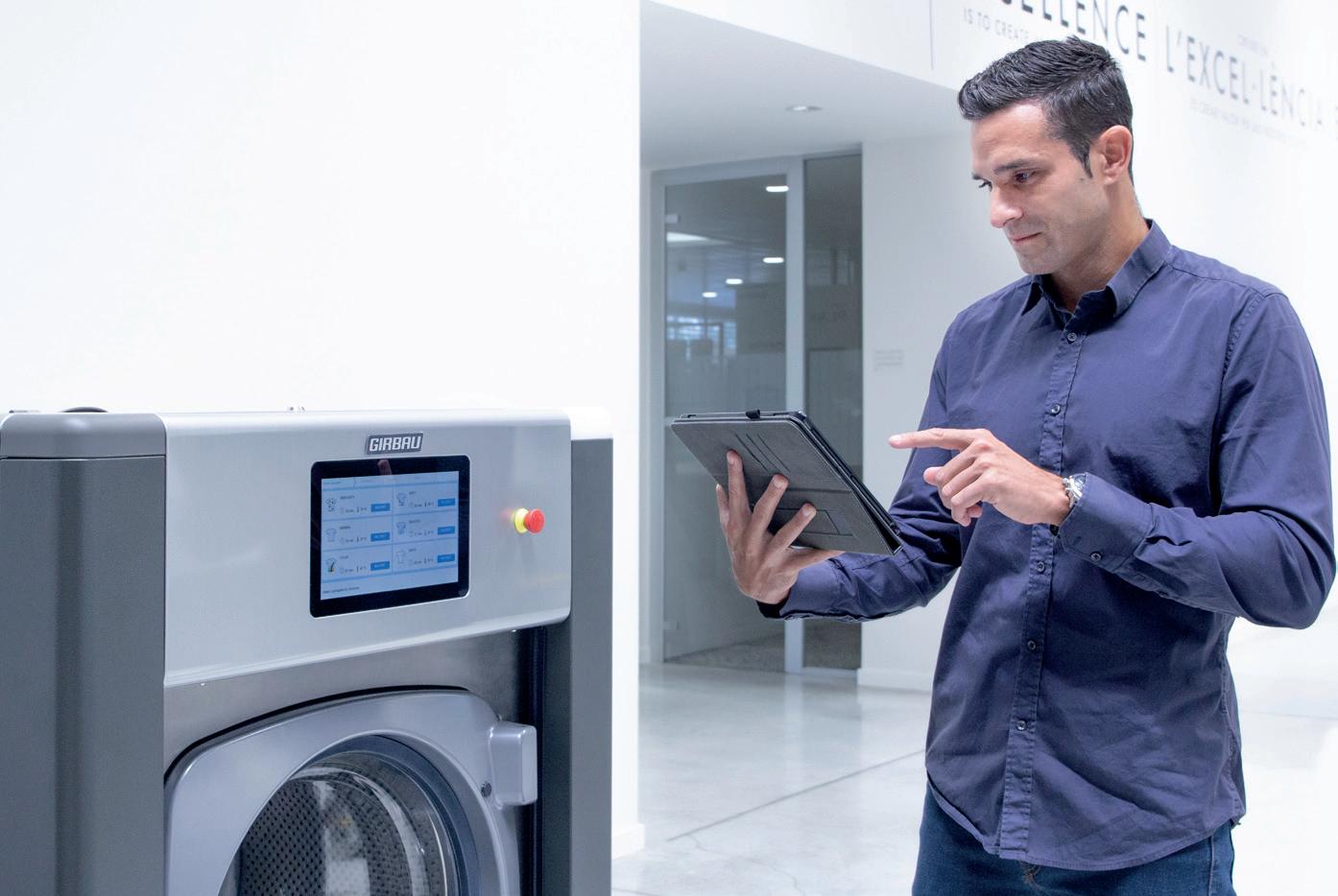
Ask your local consultant how to take control of quality and costs with an on-premise laundry
01462 427780 sales.uk@girbau.com www.girbau.com
TAKE CONTROL of your laundry operation
Make savings, take operational control and improve quality with a Girbau on-premise laundry
ChangingEnergy Procurement
With business energy provision changing, T150 Energy’s ‘Million Pound Mission’ is here to help you keep up.
Please introduce our readers to T150 Energy and tell us what the company aims to achieve.
Our main aim is to put a million pounds back into the Care, Education and Charity sectors, as part of our ‘Million Pound Mission’. T150 Energy Ltd through our ‘Payback Scheme’ are giving back £100’s to £10,000’ back into Care Homes, Nurseries, Schools, Charities and Ancillary services to use as they wish.
As well as guide them on the best course for securing both short and long-term electricity and gas supplies for their organisations. Supporting them through the ever-changing prices and terms of energy acquisition T150 Energy is here to help customers achieve the best value they can.
The founders of the T150 group have a combined experienceworking of 30+ years in business and Telecommunications, what sets you and your work apart?
Having worked within the sector so long, we have a real understanding of the pitfalls facing the care sector. We are not interested in getting just a sale, we truly understand the benefits we can offer to a care home. Our role is and has always been to be a business’s only consultant for everything energy related. We aim to secure the best rates we can time and time again

and then give back to our clients in these essential sectors to try and counter the inadequate funding and increased running costs. Maybe it’s my infantry background, I’m a strong believer in getting things done properly.
Clients work with us because they want to work with us, not because
they are just going through the motions of trying to source a new energy contract.
Purchasing energy for a care home can be time consuming, how do you help with this?
Timing is crucial when it comes to
SUSTAINABILITY
carehomemagazine.co.uk 32
energy procurement. The difference between 0.5 and a penny on rates can have a dramatic effect on yearly costs, especially for care homes often using over 100,000 kwh per year.
Owners and managers don’t have the time to study the market, or even go out to market in any meaningful way, they may approach a couple of providers directly and if they do, they will be missing out on potentially lower rates from other suppliers. We go out to over 15 different suppliers to ensure the best rates. Even owners and managers using multiple brokers, will not necessarily get the best deals. Unless you have taken the time to build a strong relationship with your consultant, you really don’t know who you are working with. We view ourselves as part of your business, employed (without the cost) by you to solely ensure you always have the best rates for gas and electricity.
Tell us about the monetary benefits for a care home working with T150.
I introduced the ‘Payback Scheme’ in January as part of my ‘Million Pound Mission’, after considering what I can do to help the care and education sectors. We already do a fantastic job in supporting our clients with their energy needs and ensuring they get the best rates, but, I wanted to do more; so I decided to pay back. Partly, because if it wasn’t for these sectors that educate and support us when we need it, I wouldn’t be here today writing this. In November 2020 I was told I was at risk of ‘sudden death’ and had six months left to live. Thanks to the amazing work of the NHS and various charities this what not the case. The ‘Payback Scheme’ was designed to pay back anything between 0.5% and 3.5% of a business’s annual cost on energy. Whilst I appreciate this does not sound a lot, in reality it means anything from 100s to 10,000s of pounds could be paid back to care homes and similar organisations
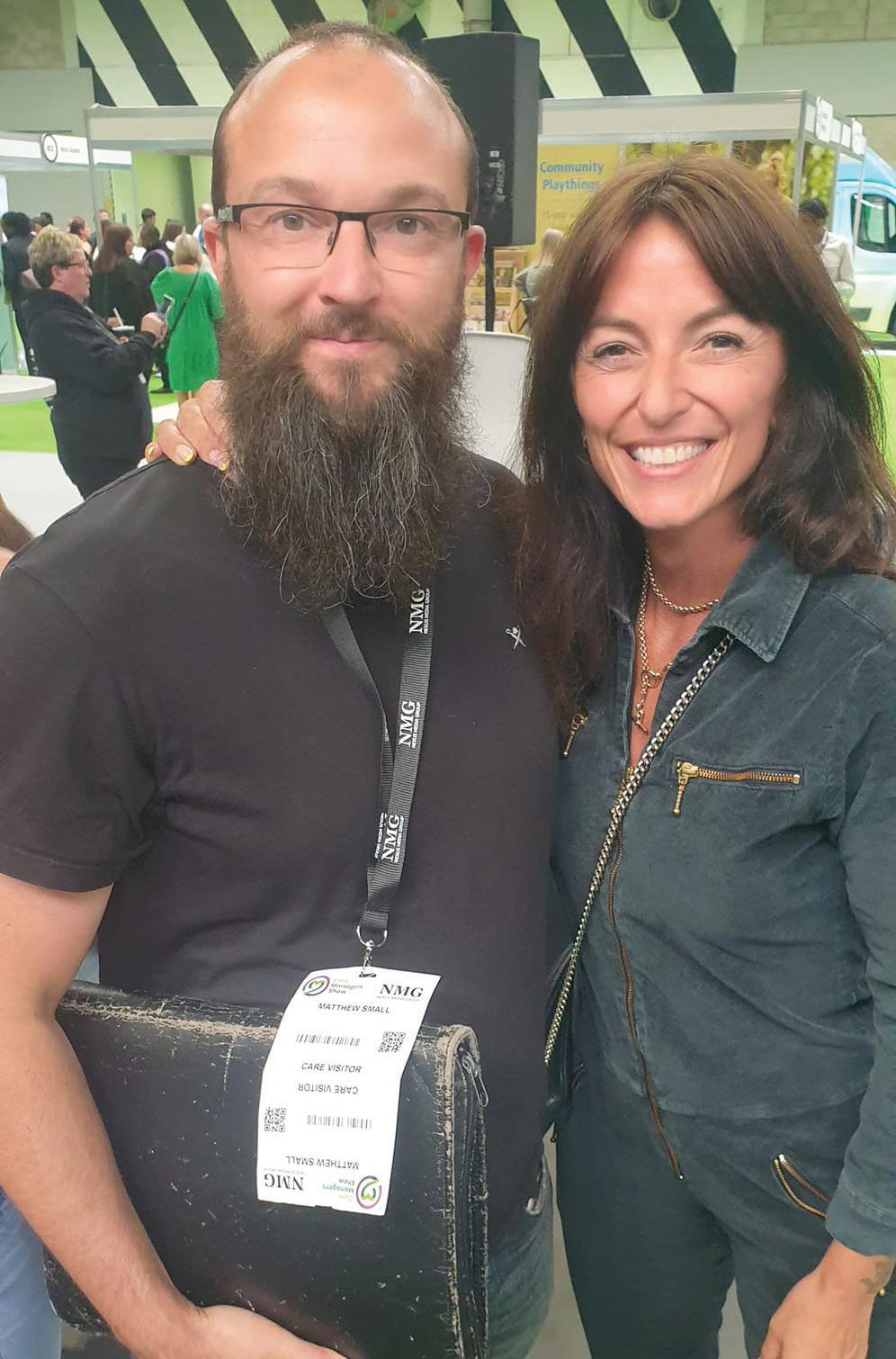
when they review their energy with us. For care home groups with multiple locations this could run into £100,000s, to be used as they see fit and if they are a registered charity, this can be done as a charitable donation as well.
Can you elaborate on the process of a care home working with T150 and how do they get in touch?
Care homes can register to be a part of the ‘Million Pound Mission’ via www.paybackscheme.co.uk or contact me on LinkedIn at Matthew Small (T150 Energy Ltd).


SUSTAINABILITY carehomemagazine.co.uk 33
A Delicate Equation
Balancing quality of care with cost efficiency - here, we discuss the challenges of maintaining a balance between delivering excellent care services and managing costs in care homes.

Providing exceptional care services while managing costs efficiently is a perpetual challenge faced by care homes worldwide. As the demand for elderly care continues to rise, alongside increasing healthcare costs, finding the equilibrium between delivering high-quality care and maintaining financial sustainability has become paramount.
In this article, we delve into the intricacies of this balancing act, exploring the challenges, strategies and potential solutions in navigating the delicate interplay between quality of care and cost efficiency.
The primary challenge in balancing quality of care with cost efficiency lies in the inherent tension between these two objectives. On one hand, care homes are entrusted with
the wellbeing and dignity of their residents, necessitating a commitment to providing compassionate, personalised care that meets individual needs. On the other hand, care homes operate within tight budget constraints, facing pressures to optimise resources and minimise expenditure to remain financially viable.
Staffing costs are currently something which centre the equation. Skilled and compassionate staff are the cornerstone of quality care provision, yet staffing expenses typically account for a significant portion of a care home’s budget.
Striking a balance between adequate staffing levels to ensure resident needs are met and controlling labour costs presents a constant dilemma.
Implementing flexible scheduling practices, such as part-time,
temporary or per diem staff, to cover fluctuations in demand will allow you to adjust staffing levels, based on peak times or resident acuity levels.
Alongside this, look to train staff to handle multiple roles within the care home. This increases flexibility and allows for better utilisation of resources, reducing the need for specialised staff in every position.
From medical supplies to facility maintenance, allocating resources effectively is crucial for maintaining both quality standards and financial stability. However, resource constraints often force care homes to make difficult decisions regarding prioritisation, potentially compromising on certain aspects of care. To prioritise effectively, you should conduct thorough assessments of the needs of each resident upon admission, and regularly thereafter. Develop
COST MANAGEMENT
carehomemagazine.co.uk 34

individualised care plans based on these assessments, which outline the specific resources required for each resident.
In the current climate, escalating healthcare costs, including medication, medical equipment and specialised treatments, impose a significant financial burden on care homes. Balancing the need for essential healthcare services with budget limitations is a perpetual challenge. But while the challenges of balancing quality of care with cost efficiency are formidable, there are various strategies which can be employed to navigate these complexities effectively, one of these being through embracing technology. Leveraging technology solutions, such as electronic health records (EHRs), telehealth platforms and remote monitoring systems, can enhance efficiency, improve communication and streamline care delivery processes.
Laura Taylor, Group Buyer at Allmanhall, explained how, as we have seen over the past year, food supply can be a volatile market and, when combined with the challenge of food inflation, it is easy for costs to spiral and for food production to become inefficient, unsustainable and expensive. Whilst negotiations work to mitigate price
increases from suppliers, Laura believes, “There are some key - and often simple - strategies that can be implemented to ensure that caterers are managing both their sourcing and production in the most efficient and cost-effective way.”
Laura revealed how, in December 2023, the Consumer Price Index (CPI) recorded a year-on-year increase of 4%, marking the first uptick since February 2023. Notably, the month-on-month increase stood at 0.4%, mirroring the rate recorded in December 2022. However, the year-on-year inflation rate for food and nonalcoholic beverages reduced from 9.2% in November 2023 to 8% in December 2023, which is the lowest figure since April 2022.
“If we look at the past two years, a substantial overall increase of approximately 26% in the prices of food and non-alcoholic beverages can be seen. During the previous decade, this increase was a mere 9% (ONS).
“The December PPI figure for the prices of imported goods into factories was a record high. This is normally an indicator that the CPI figure will rise again over the coming months. The inflation rates for domestic inputs and output
prices for food manufacturers also remain high, with the output figure 15% above the five-year average, and it is reasonable to expect that these increasing costs in the food supply chain will ultimately be passed on.”
When managing the supply chain, there are several areas a care home can focus on to help reduce costs within the purchasing process, starting with identifying the key suppliers to the catering function. Laura sees how tendering allows for the direct comparison of suppliers with one another based on specific criteria, allowing caterers to identify beneficial changes and opportunities. She says, “Whilst it is important to consider factors such as product specification, supplier service and delivery, commercial terms and, of course, price, tendering can be an effective way to evaluate, improve and change suppliers, with the overall aim of ensuring the most preferable pricing, whilst still maintaining quality.
“Consolidating can help to reduce the number of suppliers within your portfolio and, therefore, reduce the number of deliveries to a single site. Through consolidating suppliers, purchase volumes will increase, as will the delivery value, making
COST MANAGEMENT carehomemagazine.co.uk 35

it easier to negotiate preferential pricing, consequently helping to reduce the overall cost of goods.”
Consolidation doesn’t have to be limited to suppliers, but can also be applied to range management.
By reviewing your buying list and consolidating duplicate lines, volumes on key lines will increase and your product catalogue, menus and spend will be more consistent.
“When reviewing a buying list, it is important to sample products and consider all factors before implementing any restrictions,” added Laura.
Laura explained how employing a dedicated procurement organisation to oversee various aspects, such as supplier performance management, the tendering process, ongoing pricing management and invoice management, can play a pivotal role in securing competitive pricing and providing assurance to the catering function. This strategic approach not only streamlines these critical processes, but also allows the catering function to concentrate on its core operations. “The procurement organisation’s involvement in supplier
performance management ensures that vendors consistently meet, or exceed, predefined contractual requirements,” she added.
Once goods are purchased, Laura advises looking at operational practices, assessing and adjusting the processes to reduce their financial impact.
By improving the skillset and efficiency of the catering team, chefs may be more motivated to cook from scratch, rather than relying on higher cost prepackaged products. For example, ready-prepped veg can be up to 50% more expensive than loose boxed veg. If sandwiches were sourced from a sandwich supplier, it may then free up a chef’s time to prepare vegetables, thereby using their time more efficiently and reducing the cost of the ingredients.
Laura said, “Measuring and reducing waste will inevitably help eliminate unnecessary costs, as well as helping to reduce your carbon footprint. Consider whether the portion sizes are correct for the customer, or do they need to be adjusted to ensure there is less waste? Another area that
can have high outgoing costs is equipment. Whilst it can be expensive, new technology is a long-term solution to driving efficiency, with the benefits often outweighing the initial investment. However, it is important to ensure that any equipment you do have is maintained regularly, so that the quality of food is not compromised, waste is kept to a minimum and excess water and energy are not used.”
Balancing quality of care with cost efficiency is an ongoing challenge for care homes, requiring a nuanced approach that considers the unique needs of residents, financial constraints and regulatory requirements. By implementing strategic initiatives focused on optimising staffing, embracing technology, prioritising preventive care and fostering collaboration, and by fostering a culture of continuous improvement, you can navigate these challenges effectively, ensuring that residents receive the highest standard of care, while maintaining financial sustainability in an increasingly complex healthcare landscape.
COST MANAGEMENT carehomemagazine.co.uk 36
T150 want to give back as part of their Million Pound Mission

Reverse the negative impact of poor funding and crippling running costs by getting ££££’s and more back from your energy consultants.
The care sector is facing ‘major cash flow’ issues, through increased costs and a severe lack of funding.
Get more back when you review your gas and electricity and see how you can benefit from our ‘Pay Back’ scheme.
Book a call and we’ll analyse your costs and find the best options for your business.
01889 227 700
www.paybackscheme.co.uk
Raising the Bar
The Access Group, a leading supplier of business software, has helped The Care Workers’ Charity further support social care workers by raising funds for the charity.
Founded in 2009, The Care Workers’ Charity (CWC) provides one-off grants, resources and access to services for social workers in need. Since 2020, it has paid out over £5.7 million in grants, helping over 10,000 care workers in need.
The charity supports almost 2 million care workers in the UK with one-off payments designed to aid those experiencing unforeseen, or life changing circumstances, where they would struggle to support themselves. The support is available to those involved in residential social care, home care, supported living care or day care. CWC also provides mental health support, offering struggling care workers free treatment from qualified therapists.
The Access Group recognises the CWC as a charity who are making a difference to care workers and positively impacting the care sector, and has been formally supporting the CWC since March 2023.
Access Health, Support and Care (HSC), a division of The Access Group which supplies software to healthcare, local government and the care sector, hosted a pop-up coffee shop at The Care Show 2023, as well as running charity quizzes and various awareness raising events for the CWC. The Access Group has matched the generous donations raised, to double the overall contribution going to the charity. Access HSC will be at this year’s Care Show 2024, at the ExCeL London in April, where they are again running a pop-up coffee shop to raise funds for the charity. Event attendees can pick up a coffee from the Access HSC stand and make a voluntary donation to the Care Workers

Charity, with Access match-funding anything raised throughout the show.
Karolina Gerlich, Chief Executive at the CWC said, “We deeply thank Access for their continuous dedication to fundraising for The Care Workers’ Charity. Their generous donation has greatly impacted us, and we are delighted to learn about their upcoming fundraising initiative at the Care Show in April. The innovative concept of providing coffee in exchange for donations sounds fantastic!
We cherish our strong bond with Access and genuinely appreciate the ongoing engagement and passion they bring to our shared mission. Thank you for making a difference in the lives of care workers.”
Access HSC was a finalist in The 25th National Care Awards 2023 in the category of ‘Top Organisation Fundraiser Award’ for their fundraising efforts with the CWC.
As well as supporting the charity directly, members of the Access HSC team gave their time
to volunteer at the Care Sector Fundraising Ball 2023.
Steve Sawyer, Managing Director at Access HSC comments, “We’re delighted to be able to support care workers through the great work the Care Workers’ Charity do on a daily basis. It’s vital to ensure carers have the financial and mental health support they need. As a software provider to the social care sector, we aim to make the lives of care workers easier through the use of efficient, time-saving technology; being able to additionally support in their time of need through the great work the CWC carries out is a privilege.”
The Access Group is one of the largest UK-headquartered providers of business management software to small and mid-sized organisations in the UK, Ireland and Asia Pacific. Their Health, Support and Care division (HSC) works with more than 10,000 registered care providers, over 200 local authority departments, and around 50 NHS trusts, providing technology that helps these organisations deliver more efficient and personalised care.
BUSINESS
carehomemagazine.co.uk 38

Boosting Recruitment Efficiency
Find out how Beaumont achieved a 50% time reduction in the overall recruitment process with help from SeeMeHired.
Who’s Beaumont Care?
Beaumont Care Homes, operating across multiple locations, including Belfast, Bangor, Ballymena, and Newtownabbey, is dedicated to fostering a supportive environment prioritising care, comfort, and individual wellbeing. With over a decade of experience providing specialised care services in their 29 care homes, they have established a reputation for delivering personalised care plans, emphasising dignity and respect for each resident. Their team of highlytrained professionals undergoes continual development, ensuring the highest standards of care. As a leader in the care sector, Beaumont Care Homes embodies a culture of inclusivity and excellence, focusing on enhancing the lives of those they serve.
Why SeeMeHired?
With a vision for better candidate experience and hiring the best candidates, Gillian from Beaumont sought a simple hiring and on boarding solution aligned with Beaumont’s recruitment process and the care sector’s recruitment guidelines. After considering much software, Gillian decided to go ahead with SeeMeHired as the system was straightforward and had the features to digitise its existing recruitment process.
We initially rolled out the system to a few care homes before going live for all 29 homes and training the hiring managers. A proactive approach towards training and

on boarding helped in a smooth transition from the manual process.
We initially rolled out the system to a few care homes before going live for all 29 homes and training the hiring managers. A proactive approach towards training and on boarding helped in a smooth transition from the manual process.
Streamlined approach towards posting jobs
Beaumont Care Homes completely revolutionised how they handled their applications using the SeeMeHired system. The jobs were directly posted in SeeMeHired and
automatically published to major job boards like LinkedIn, Indeed, NI jobs and over 20 other free job boards. This saved time creating duplicate job posts and increased the reach to a broader audience.
Unlike hundreds of emails, all the applications from these job boards flowed back to the SeeMeHired system, enabling the HR team to tackle all applications from one place. Managers could view the duplicate applications through the ‘Previously applied’ section and take the required action.
seemehired.com
Challenges with Recruitment:
Before SeeMeHired, Beaumont had set up manual processes that consumed much time, impacting the candidate experience. The main pain points were:
1. Manual recruitment process impacting the time to hire and candidate experience.
2. Managing thousands of applications, document proofs
and reference requests over email, which delayed the candidate’s start time
3. Checking the right to work and other documents of the overseas candidates after the interview, which wasted hiring managers’ time as most of them did not have the proper documents.
RECRUITMENT
carehomemagazine.co.uk 40

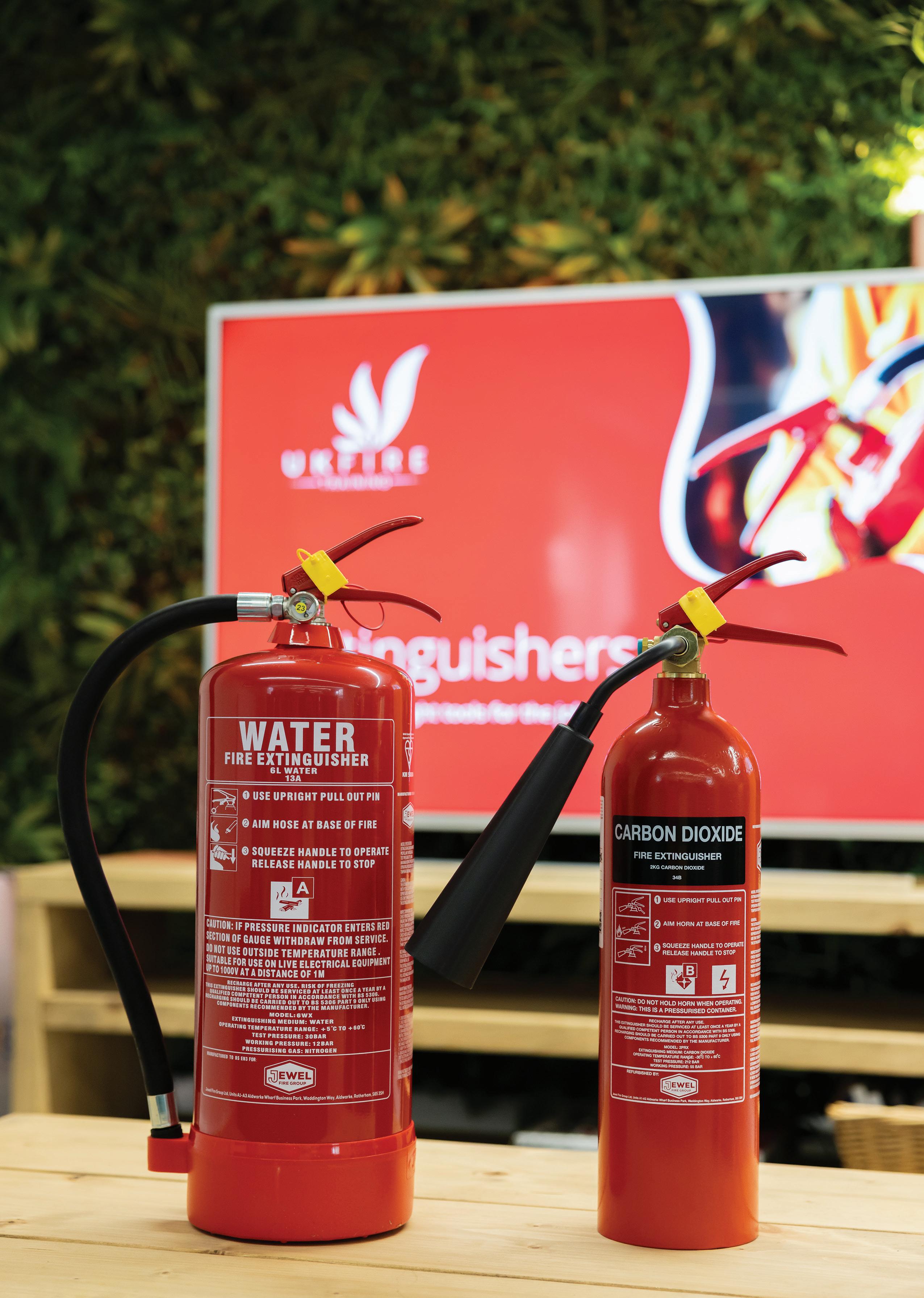
UK’s Number 1 fire training provider. Care home fire training delivered by knowledgeable firefighters. 0800 216764 www.ukfiretraining.com info@ukfiretraining.com
Care Home Activities
Famileo Pro
0117 205 1185
sales@famileo.com
www.famileopro.com

@famileo_uk
FamileoUK famileo
Care Home Equipment
Care
Supply Store
01375 651 609
www.caresupplystore.co.uk
Interior Design
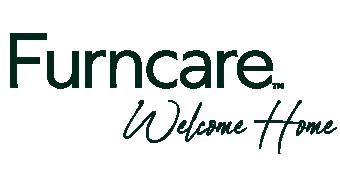
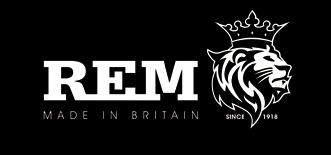


@caresupplystore
Care-SupplyStore-708536899310571 care-supply-store
Coffee Solutions

JDE
0808 100 1030
www.jacobsdouweegberts professional.co.uk
Food Services


allmanhall
01225 745520
hello@allmanhall.co.uk
www.allmanhall.co.uk
allmanhall
T: 07714 710707
E: paul.r@signature-dining.com
T: 07738 981860
E :sarah.h@signature-dining.com
www.signature-dining.com


Furncare
01603 664900
sales@furncare.co.uk
www.furncare.co.uk

@furncareltd furncare furncare
REM
01282 619977
sales@rem.co.uk
www.rem.co.uk

@remuklimited remuklimited rem-1
Girbau
01462 427780
sales.uk@girbau.com
www.girbau.com Girbau
girbau-uk
Miele
0333 230 1347
professional.sales@miele.co.uk
www.miele.co.uk/pro/care miele-professional
August
01920 487700
audarhealth@augustint.com
www.audarhealth.com/home/ carehome
International
Professional UK
Signature Dining
carehomemagazine.co.uk
42
Directory
Remote Health Monitoring
Laundry

GET IN TOUCH
We’d love to hear from you on how your business is progressing in 2024. Specifically, any new ideas you’ve implemented, any ways you are making additional revenue, your sustainability initiatives and your plans for the rest of the year – we know that a lot of you are doing inspiring things every day in your businesses and we want to give you the opportunity to shout about it.
Please reach out to jamesd@cimltd.co.uk for the opportunity to be featured in Care Home Magazine.
www.carehomemagazine.co.uk


The UK’s most comprehensive selection of care home supplies Over 30,000 products available online 01375 651 609 caresupplystore.co.uk
























































































































































































